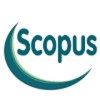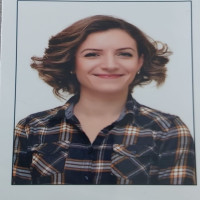Research Article
Issue Editorial Board
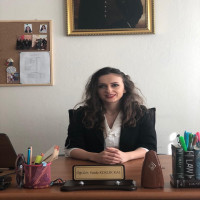





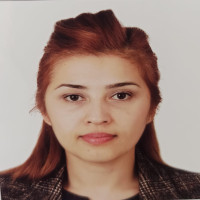

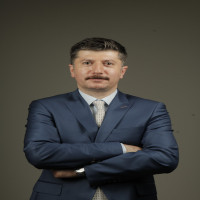


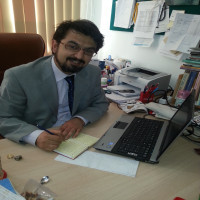
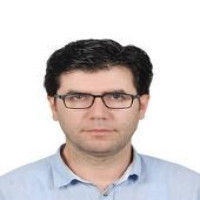
1981 yılında Adıyaman'da dünyaya geldi. 1999 yılında Adıyaman Anadolu Lisesinden mezun oldu, aynı yıl Çukurova Üniversitesi Türk Dili ve Edebiyatı bölümünü kazandı, 2003 yılında mezun oldu. 2004 yılında Çukurova Üniversitesi Sosyal Bilimler Enstitüsünde Tezsiz Yüksek Lisans programını tamamladı. Adapazarı, Batman ve Adıyaman'da MEB bağlı çeşitli liselerde edebiyat öğretmenliği yaptı. İstanbul Kuleli Askerî Lisesinde, 2007 yılında yedek subay vasfı ile yabancılara Türkçe öğretimi ve diksiyon öğretmenliği görevini yürüttü.2014 yılında Adıyaman Üniversitesi Sosyal Bilimler Enstitüsü Yeni Türk Edebiyatı dalında yüksek lisansa başlayarak iki yıl sonra mezun oldu. 2016 yılında aynı üniversitede doktora programına başladı, 2021 yılında doktora öğrenimimi tamamladı. Yurt dışı görevi nedeniyle Pakistan, İtalya ve Almanya'da bulundu. 2023 yılında yılın öğretmeni seçildi. Yurt içi ve yurt dışında sempozyumlarda bildiriler sundu. Akademik hakemli dergilerde makaleler yayınladı. TÜBİTAK projeleri, ERASMUS, AB, sosyal sorumluluk projelerinde eğitmenlik, danışmanlık, yürütücülük gibi çeşitli görevlerde rol aldı. Proje yönetimi, yaratıcı yazarlık, akıl oyunları, masal anlatıcılığı, diksiyon, yabancılara Türkçe öğretimi, üstün yetenekliler eğitimi, soru hazırlama, eğitimde drama, beden dili alanlarında eğitimler aldı ve ilgili alanlarda eğiticilik görevleri üstlendi. Kitap, şiir, resim ve kültürel geziler ilgi alanları arasındadır. İyi düzeyde İngilizce biliyor olup evli ve üç çocuk babasıdır.


Nazan YILDIZ ÇİÇEKÇİ 2004 yılında Karadeniz Teknik Üniversitesi, İngiliz Dili ve Edebiyatı bölümünden mezun oldu. 2005 yılında aynı bölümde araştırma görevlisi olarak çalışmaya başladı. 2007 yılında aynı üniversitede Uygulamalı Dilbilimi alanında yüksek lisansını “Karadeniz Teknik Üniversitesi, İngiliz Dili ve Edebiyatı Anabilim Dalı Edebiyat Derslerindeki Eleştirel Düşünce Ortamını Edebiyat Tabanlı Eleştirel Düşünce Programıyla Geliştirmek üzerine Deneysel Bir Çalışma” adlı teziyle tamamladı. 2008 yılında Hacettepe Üniversitesi, İngiliz Dili ve Edebiyatı bölümünde doktora öğrencisi oldu ve aynı bölümde araştırma görevlisi olarak çalışmaya başladı. 2015 yılında “Geoffrey Chaucer’ın Canterbury Hikayeleri’nde Melezleşme ve Sınıflar Arasındaki Sınırların Yeniden Çizilmesi” adlı teziyle doktora derecesini aldı. Oregon Üniversitesi, Amerikan İngiliz Enstitüsünden eleştirel düşünce becerileri üzerine sertifika sahibidir. Ulusal ve uluslararası yayın ve bildirileri bulunmaktadır. Orta Çağ İngiliz Edebiyatı, Orta Çağ Tarihi, Chaucer, Eski İngiliz Edebiyatı, İngiliz Romanı, Kadın Çalışmaları, Toplumsal Cinsiyet, Karşılaştırmalı Edebiyat, Sömürgecilik ve Sömürgecilik sonrası Dönemi İngiliz Edebiyatı, ve Eleştirel Düşünce ve Edebiyat başlıca çalışma alanlarıdır. Karadeniz Teknik Üniversitesi, İngiliz Dili ve Edebiyatı Bölümü’nde doçent olarak görev yapmaktadır.

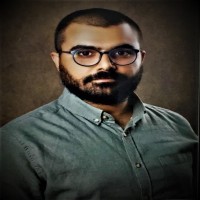


 Web
Web
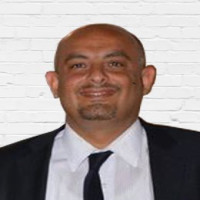

2014 yılında Atatürk Üniversitesi İlköğertim Bölümü’de doktorasını tamamlayan Mertol, Tübitak Doktora araştırma bursu ile New York St. John’s University’de Üstün Zekâlıların Eğitimi konusunda dünyaca ünlü isimlerden biri Güney Koreli Prof.Dr. Shooke Cho ile 8 ay NewYork’ta kalarak çalışmıştır. Kısa bir dönem MEB Özel Eğitim ve Rehberlik Genel Müdürlüğünde Özel Yeteneklilerin Geliştirilmesi Daire başkanlığı yapmıştır. KKTC Yakındoğu Üniversitesi’nde bir yıl süreyle Üstün Zekalılar Öğretmenliği bölümünde yarı zamanlı ders veren Mertol’un özel yeteneklilerin eğitimi ve dikkat ve algısı konusunda çeşitli yayınları bulunmaktadır. Özel eğitim ve özel yetenek konusunda iki bilimsel kitabın editörlüğünde bulunmuştur. Yurt içi ve yurt dışında farklı üniversitelerde ders vermeye eden Mertol, Üç doktora iki tezli yüksek lisans mezunudur. Farklılaştırma, Zenginleştirme ve Sosyal Bilgiler, coğrafya , okul öncesi alanlarında çalışmalara devam etmektedir. Multidisiplinler çalışmalara daha çok ağırlık veren Mertol, Halen Tokat Gaziosmanpaşa Üniversitesi Bölgesel Coğrafya alanında çalışmaktadır. Evli ve iki çocuk babasıdır.

1995 yılında İstanbul’da doğdu. İlk, orta ve lise öğrenimini memleketi Kahramanmaraş’ta tamamladı. 2015-2019 seneleri arasında Gazi Üniversitesi Türk Müziği Konservatuvarını okul birincisi olarak bitirdi. Ardından Hacı Bayram Veli Üniversitesi Lisansüstü Eğitim Enstitüsün Türk Müziği Yüksek Lisans programında “Manisa Müftüsü Ahmed Âlim Efendi'nin hayatı ve mûsikî eserlerinin incelenmesi” adlı tezi ile Yüksek Lisansını 2021 yılında tamamladı. Aynı sene Tokat Gaziosmanpaşa Üniversitesi Lisansüstü Eğitim Enstitüsün Türk Müziği Doktora programına başlayıp “Türk Müziğinde Geçki Teknikleri” isimli tez çalışması ile doktorasını yapmaktadır.
Ney sazına 2010 senesinde Kahramanmaraş’ta Neyzen Mustafa Çam ile başladı. Kısa bir süre sonra hem Kahramanmaraş Mûsikî Derneği şefi Neyzen Bestekâr Bahaiddin Bilginer’le ney derslerine hem de Mûsikî Derneği icrâlarına başladı. Uzun süre bu dernekte icrâlara katıldı ve Neyzen Bestekâr Bahaiddin Bilginer’in tedrîsâtından geçti. Aynı zamanda irtihâline (2024) kadar Kuyumcu Neyzen Metin İSPİR ile de ney çalıştı. Liseden sonra kazandığı Yalova Üniversitesi İlâhiyat Fakültesinde Doç. Dr. Selman Benlioğlu ile ney çalıştı. İlk ciddi tavır, üslup derslerini hocası Doç. Dr. Selman Benlioğlu ile gerçekleştirdi. Daha sonra bir sene kadar bir hoca riyasetinde olmadan çalıştıktan sonra konservatuvara geçmeye bir dönem kala; Neyzen M. Sadreddin ÖZÇİMİ hocanın ayda bir defa olmak suretiyle Kahramanmaraş’ta ney derslerine başlaması üzerine onun tedrisatına girdi. Hocanın 2 sene devam ettiği Kahramanmaraş ney derslerinin hemen hepsine Karabük ve Ankara’dan gidip gelerek katıldı.
2015 senesinde Gazi Üniversitesi Türk Müziği Konservatuvarına başladı. Konservatuvar da Ankara Klasik Türk Müziği Korosu Ney Sanatçısı Tevfik Bilen ile 4 sene ney çalıştı. yaz aylarında İstanbul Üniversitesi Osmanlı Müziği Araştırma Merkezinin 2015 yılının açtığı yaz kursunda M. Sadreddin ÖZÇİMİ’den istifade etmeye devam etti. Konservatuvar ikinci ve üçüncü sınıftayken 2016 ve 2017 yıllarında Konya’da yapılan Şeb-i Arus ihtifallerine misafir neyzen olarak katıldı. Konservatuvarın son iki senesinde Ankara Klasik Türk Müziği Korosu Ses Sanatçısı Neyzen Dr. Timuçin ÇEVİKOĞLU’nun derneğinde onun Mevlevî âyini ve Klasik takım meşklerine devam etti. Ankara’da MEKÜSAV Vakfı (Mevlâna Kültür ve Sanat Vakfı) Mevlevî âyini meşklerine katıldı. Bu Vakıfla bir süre Galata Mevlevîhânesinde âyin icrâlarında bulundu. Kazandığı Gazi Üniversitesi Türk Müziği Konservatuvarını okul birinciliğiyle tamamladı. Yurt içinde birçok konser ve etkinlikte icrâcı oldu.
Sanat öğrenimi hayatı boyunca Udi Necati ÇELİK, Udi Feti BARUT, Neyzen ve Ses Sanatçısı Hüseyin Kudsi SEZGİN, Neyzen Hakan ALVAN, Neyzen Yavuz AKALIN, Tanbûri Kağan ULAŞ, Tanbûri Alper UZKUR ve Rahmetli Ses Sanatçısı Memduh CUMHUR… hocaların lütfetmeleri vesilesi ile onları fırsat buldukça ziyaret ederek onlardan feyz, yeni bilgiler, dersler, tavsiyeler aldı ve almaya devam etmektedir.
Şu anda Tokat Gaziosmanpaşa Üniversitesi Devlet Konservatuvarında Dr. Araştırma Görevlisi olarak görev yapmaktadır. Yayınlanmış 2 makale çalışması bulunmaktadır. Evlidir.
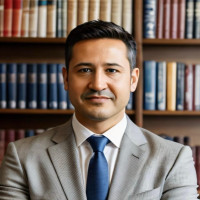








LİSE: İzmir Işılay Saygın Anadolu Güzel Sanatlar Lisesi,
LİSANS: Gazi Üniversitesi Eğitim Fakültesi Güzel Sanatlar Eğitimi Bölümü Müzik Eğitimi Anabilim Dalı,
YÜKSEK LİSANS - DOKTORA: Gazi Üniversitesi Eğitim Bilimleri Enstitüsü Güzel Sanatlar Eğitimi Anabilim Dalı Müzik Öğretmenliği Bilim Dalı
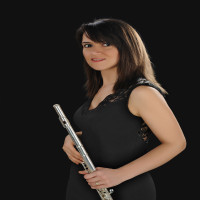
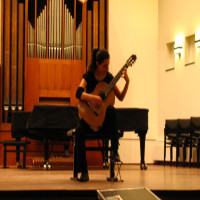
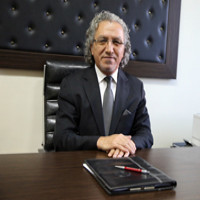
Issue Reviewers

1986 yılında Konya Ereğli'de doğdu. Ortaokulu Akşehir Anadolu Lisesinde tamamladı. Burada birçok şölen ve etkinlikte Türk Halk Müziği eserleri seslendirdi. Mesleki müzik eğitimine Eskişehir Anadolu Güzel Sanatlar Lisesinde başladı. Burada Asu Perihan Karadut ve Başak Güler ile Viyolonsel, Pınar Gülsen ile Piyano, Özlem Erdoğan ile koro çalıştı. İlk yıldan itibaren lisenin çok sesli korosu ile bir çok konserde korist olarak yer aldı. Lise son sınıfta Piyano resitali gerçekleştirdi. Lisans eğitimini Uludağ Üniversitesi Eğitim Fakültesi Müzik Öğretmenliği programında tamamladı. Burada Alpay Güldoğan ile Piyano, Hüseyin İsmihan ile Klarnet, Hasan Adıgüzelzade ile Orkestra, Atilla Sağlam ile Armoni, İsmail Bozkaya ile Müziksel İşitme, Elif Şahin, Gülnihal Gül ve Göknur Kara ile Şan ve Koro, Yaşar Kemal Alim ile Halk Müziği, Aydın Atalay ile Sanat Müziği çalıştı. Lisans yılları boyunca birçok konserde korist, orkestra elemanı (klarnet) ve solist (şan, piyano) olarak yer aldı . Bursa Nilüfer Çok Sesli Korosu ile yurtiçi ve yurtdışı birçok konserde korist olarak yer aldı. Lisans yıllarında üç yıl boyunca Eva Diyaroğlu yönetimindeki Diyaroğlu Bale Okulunda korrepetitörlük yaptı. Lisansüstü eğitimine Trakya Üniversitesi Sosyal Bilimler Enstitüsünde başladı. Burada Elena Yusupova ile Piyano, Ömer Yöndem ile Orkestra yönetimi, Atilla Sağlam ile Armoni çalıştı. Aynı zamanda Eğitim Fakültesi Müzik Öğretmenliği Programında ve Edirne Anadolu Güzel Sanatlar Lisesinde Piyano derslerini yürüttü. Buradaki süreçte Piyano icracısı ve Türk Halk Müziği solisti olarak çeşitli konserlerde yer aldı. 2010 yılında Araştırma Görevlisi kadrosunda Artvin Çoruh Üniversitesinde çalışmaya başladı. Yüksek Lisans ve ardından Doktora eğitimine Gazi Üniversitesi Eğitim Bilimleri Enstitüsü Müzik Eğitimi Anabilim Dalında devam etti. Burada Sadık Özçelik ile Müziksel İşitme, Aytekin Albuz ile Türk Müziği Çok Seslendirme, M. Cihat Can ile Müzik Eğitiminde Araştırma Yöntemleri, Birsen Jelen ile Piyano çalıştı. Gazi Eğitim Fakültesi Güzel Sanatlar Eğitimi Bölümü Müzik Eğitimi Anabilim Dalında Piyano ve Müziksel İşitme derslerini yürüttü. Ankarada bulunduğu süreçte Elnara Kerimova'nın yönetimindeki Orfeon Oda Korosu ve İlknur Özal Göncü yönetimindeki Ankoroda korist olarak yer aldı. İki buçuk yıl SGDD ASAM Mülteci Çocuklar Korosunu çalıştırdı. Bu süreçte birçok konserde koronun şefliğini yaptı. Doktorasını bitirdikten sonra Amasya Üniversitesi Eğitim Fakültesi Güzel Sanatlar Eğitimi Bölümü Müzik Eğitimi Anabilim Dalında Dr. Öğretim Üyesi olarak çalışmaya başladı. Burada birçok konserde Türk Halk Müziği solisti olarak yer aldı, Oda Müziği (piyano) ve Çok Sesli Koro (şef) konserleri gerçekleştirdi. 2024 yılında Doçentlik ünvanını aldı. Halen aynı kurumda Piyano, Şan, Armoni, Çok Sesli Koro, Türk Halk Müziği Korosu, Batı Müziği Teori ve Uygulaması, Türk Halk Müziği Teori ve Uygulaması Orkestra ve Oda Müziği derslerini yürütmektedir.
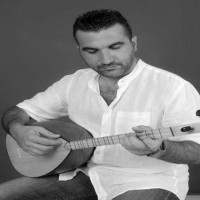
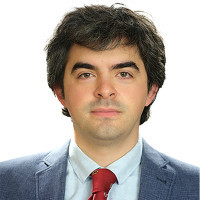
Yunus Gencer (DMA) has been an active lecturer in areas such as ear training, piano, music appreciation, music theory, music history, counterpoint, harmony, composition and form analysis since 2007; teaching students from diverse backgrounds and age groups. He is an Associate Professor since August 2023.
His books, Dance Music in the Baroque Era I - II (2023), Interactive Accompanied Solfeggio I (2023), and A Saygunian Approach to the Study of Harmony (2021) were published by Kriter and Pan. His article, Ottoman Influences on European Music was published in Volume 10 and Volume 14 of the CMR Project of The University of Birmingham. He also presented his paper on the same topic at the Intercultural Music Conference 2 in 2018. Gencer's second scholarly article Understanding Opera’s Predecessor Madrigal Comedy and an Analysis of Adriano Banchieri’s Il Zabaione Musicale was published in the peer-reviewed journal MSFAU Journal of Social Sciences.
In 2024 he was comissioned by Anatolian Wind Quintet to compose Masalımtrak which was played in III. Adana Chamber Music Festival. In 2022, he was commissioned by Gedik Sanat to compose a Clarinet Concerto and the piece was performed in Süreyya Opera House on May 10, 2023. Gencer also composed music for Unvoiced Diaries (2020) and Quarantine Circumstances (2021) projects of Gedik Sanat. He received the Smit Composition Award in 2015 and his compositions were performed in various stages in Istanbul, London, Essen, Boston, and Memphis.
In 2021, he published Disentangled; a non-music related book which contains his poems, essays and aphorisms.
Gencer started his music education in high school at Mimar Sinan Fine Arts University (MSFAU) State Conservatory (Istanbul). After graduating from high school with high honours, he was accepted to study as a double major student in composition and music theory at the same university. He finished the four year program, of the two majors, in three years and graduated summa cum laude in 2010. After his graduation, he became a lecturer in MSFAU and at the same time continued studying as a post-graduate composition student at the same university. In 2011, he studied in Royal Northern College of Music (Manchester, UK) as an ERASMUS exchange student. Following the acceptance of his Full Assistantship application to the University of Memphis (TN, USA), he continued his education in the United States. He earned his Master’s degree in December 2013, and his DMA in 2016. Between 2016 and 2020, he worked as an adjunct professor at Mimar Sinan FAU, Marmara University, Okan University, and TEVITOL. Gencer holds an Assistant Professor position at MSFAU since 2020. He became an Associate Professor in 2023.
Throughout his education, he received guidance from esteemed composers and scholars such as Volkan Barut, Adam Gorb, Ozkan Manav, Gary Carpenter, Hasan Ucarsu, Kamran Ince, and John Baur.
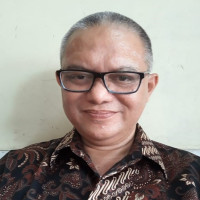
Dr. Andre Indrawan born in Bandung, 10 May 1961. His academic background including: 1) Bachelor of Arts with Honour (1986) in Music Studies, from the Department of Music, the Faculty of Arts, Yogyakarta Indonesian Institute of the Arts, 2) Master of Humanities in Performance Arts Studies (1994), from the Faculty of Cultural Sciences, Gadjah Mada University, Yogyakarta, 3) Master of Music Studies (2000) from the Faculty of Music, the University of Melbourne, Australia, and 4) Doctor of Philosophy in Performing Arts and Fine Arts (2010), from Gadjah Mada University. In addition, he also held highest professional qualifications in music teacher and performance, such as (1) Certificate in classical guitar teaching from Yamaha Music Foundation, Tokyo (1996), and 2) classical guitar diploma, the Licentiate of Music, Australia (L.Mus.A.) form Australian Music Examination Boards, (AMEB), Melbourne, Australia (1997). Since 1987 he has been serving as full time music lecturer at Yogyakarta Indonesian Institute of the Arts with his current teaching position as the Associate Professor of music. He was formerly responsible as the Head of Music Department for the 2011-2015 and 2015-2019 periods.

Anıl Gelenler, embarked on his musical journey by earning a full scholarship to Bilkent University's Faculty of Music and Performing Arts in 2003, where he was mentored by Prof. Kağan Korad. He further enriched his musical prowess through active participation in masterclasses conducted by distinguished guitarists such as Costas Cotsiolis, Tilman Hoppstock, Marco Socias, Srdjan Tosic, Liviu Georgescu, Bosko Radojkovic, Thomas Kirchhoff, Anelio Desiderio, and Roland Dyens. Anıl Gelenler's commitment to education and music is evident through his roles as a lecturer and academic coordinator at Bilkent University's Department of Classical Guitar from 2012 to 2016 and a lecturer at Karabuk University from 2016 to 2017. A testament to his artistry, the piece "Ate Breve" from Roland Dyens' album "Les 100 de Roland Dyens," featuring 100 new solo guitar works, was dedicated to Anıl Gelenler. He has made significant contributions to the music community by giving concerts and masterclasses at the international Guitar festival in Ankara known as "Turkey Guitar Meetings". His musical performances are marked by versatility, both as a soloist and within various chamber music ensembles. Notably, he recorded two pieces for the "Gitarla Buluşma" CD, published by "Cagsav Müzik." Anıl Gelenler successfully completed his MA studies at Mimar Sinan Fine Arts University, Department of Classical Guitar, in 2017 and embarked on his "Doctorate of Music" studies at Anadolu University State Conservatory in the same year and completed in 2024. At 2020, his talents reached out to Dubai Opera, where he participated as a musician in the "Broken Wings Musical" performances, organized by Theater Royal Haymarket Production. Anıl Gelenler continues to thrive in his active career as a performer and concurrently serves as a research assistant at Yasar University's Department of Music, located in İzmir.
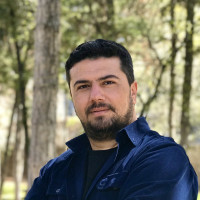

1975 yılında İzmir'de doğdu. İlk, orta ve lise öğrenimini İzmir'de tamamladıktan sonra 1994 yılında Ege Üniversitesi Devlet Türk Mûsıkîsi Konservatuvarı Temel Bilimler Bölümü'ne girdi. Meslek çalgısı olarak seçtiği tırnak kemençeyi TRT İzmir Radyosu kemençe sanatçısı Gülten Yeğin'den öğrendi. 1997 yılında TRT İzmir Radyosu sınavını kazanarak bir yıl bu kurumda akitli saz sanatçısı olarak görev aldı. Ortaokul yıllarında aldığı piyano eğitimini konservatuvarda da sürdürdü. 1999 yılında lisans eğitimini, 2003 yılında Ege Üniversitesi Sosyal Bilimler Enstitüsü Temel Bilimler Anabilim Dalında "Kemençe Eğitimi" konulu tezi ile yüksek lisans eğitimini tamamladı. 2006 yılında Öğr. Gör. Mehmet Yalgın ile beraber hazırladığı Kemençe Metodu 1 adlı kitabı yayımlandı. 2007 yılında Ege Üniversitesi Sosyal Bilimler Enstitüsü Temel Bilimler Anabilim Dalı Duysal Tasarım Programı'nda doktora öğrenimine başladı. “Kastamonu Yöresi Geleneksel Müzik Pratiklerinde Kemane” adlı doktora tezini tamamlamasının ardından, 2022 yılında, Türk Sanat Müziği/Yorumculuk alanından doçent ünvanını aldı.
Halen Ege Üniversitesi Devlet Türk Mûsıkîsi Konservatuvarı'nda Tırnak Kemençe derslerini vermektedir.

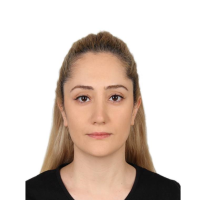
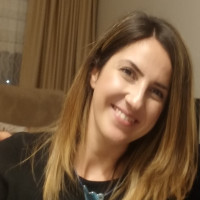
ÖZGEÇMİŞ
1988 senesinde Ankara’da doğdu. İlk müzik kariyerine 8 yaşında piyano çalarak başladı. Sonrasında 1995 yılında Bilkent Üniversitesi Sahne Sanatları fakültesinde erken müzik eğitimi almaya başladı. İki senelik konservatuvara hazırlık eğitimini tamamladıktan sonra 1998 senesinde Hacettepe Üniversitesi Devlet Konservatuvarının sınavını kazanarak Üflemeli ve Vurmalı Çalgılar Ana sanat dalı, Flüt Sanat dalına kabul edildi. Flüt eğitimini Öğr. Gör. Aysun KORKMAZ ile, Piyano derslerini ise Doç. Bilge ÇİVRİL ve Yrd. Doç. Vuslat KOYUNCU ile tamamladı. Ortaokul, lise ve üniversite eğitimini Hacettepe Üniversitesi Devlet Konservatuvarında bitirdi ve 2008’de yüksek bir ortalamayla mezun oldu.
Üniversite hayatı boyunca yurtdışından ve yurtiçinden pek çok sanatçıyla çalıştı ve ayrıca Hacettepe Üniversitesi Senfoni orkestrasıyla görevli olarak turnelere katıldı. Ardından 2009 senesinde Dokuz Eylül Üniversitesi Devlet Konservatuvarında Yüksek Lisans sınavını birincilikle kazanarak Yrd. Doç. Çiler AKINCI ile flüt eğitimine devam etti. İki sene içinde tezini tamamlayıp başarıyla mezun oldu. Ardından 2012’de tez sunumu için Ahmet Hisarlı Sempozyumuna katılarak sertifika almaya hak kazandı. Öğrenim hayatı boyunca hem “solo” hem de “oda müziği” olarak farklı üniversitelerde pek çok konserler verdi ve Masterclasslar’a (Çalıştay) katılarak sertifikalar aldı. 2013 senesinde Gazi Üniversitesi Eğitim Fakültesinde Pedagojik Formasyon eğitimini tamamlayarak sertifikasını aldı. Üniversiteden beri birçok kursta ve ayrıca Özel okullarda öğretmenlik yapmıştır. Bu süre zarfında eğittiği öğrencilerini Milli Eğitim bakanlığının yaptığı yarışmalara hazırlamış, 2013 senesinde flüt yarışmasına katılan bir öğrencisi 1.lik ödülü kazanmıştır. 2015 yılında da Anadolu Üniversitesi Devlet Konservatuvarının ‘Sanatta Yeterlik’ sınavını kazanmış ve Doç. Özlem KOÇYİĞİT’ in flüt sınıfına kabul edildi. 8. 01. 2019 tarihinde Sanatta yeterlik (Doktora) eğitimini tamamlamıştır. Aynı sene Trabzon Üniversitesi Devlet Konservatuvarında Öğr. Gör. Olarak çalışmaya başlamıştır. Sonrasında 2022 Eylül ayında Dr. Öğr. Üyesi olarak atanmıştır.
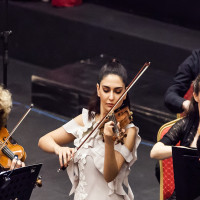






.
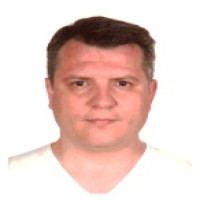


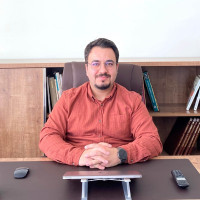
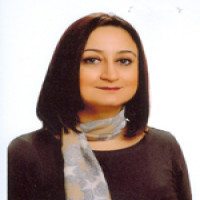
Dr. M. Nevra Küpana is an Associate Professor at the Musicology Department of Sakarya University State Conservatory. She received her bachelor's, master's, and doctorate degrees in music and piano education from Marmara University. She also gave lectures in the fields of piano and correpetition at the faculties of fine arts at Kocaeli University and Marmara University. In 2020, she was a post-doctoral researcher in the field of music psychology at the Instituto Politécnico do Porto, Portugal, as a TÜBİTAK scholar. Since 2025, as a TÜBİTAK scholar, she is a post-doctoral researcher and visiting professor in the field of piano education at the Universitat Autònoma de Barcelona (UAB).
Her research interests include piano education, music education, and music psychology. She is a board member of Turkiye Music Educators Association (MÜZED), and a member of European Piano Teachers Association (EPTA). She has presented several papers at international conferences and has published several books, book chapters, and articles. She has also performed in many concerts and festivals, both nationally and internationally, as a pianist, correpetitor, and choir member. She has also various artistic and scientific awards.
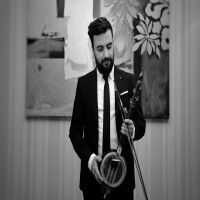
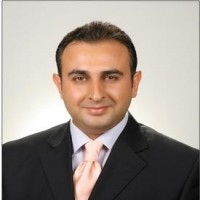

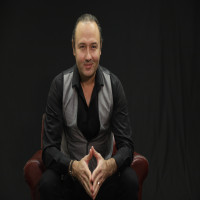

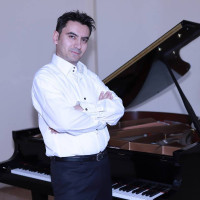

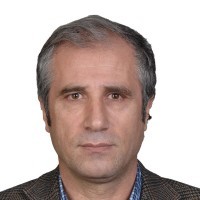
Mustafa Hilmi BULUT, müzik eğitimi alanında doktora derecesine sahiptir. Lisans, yüksek lisans ve doktora öğrenciliği dönemlerinde Prof. Dr. Ali Uçan, Prof. Dr. Türev Berki, Prof. Ülkü Özgür, Prof. Dr. Şeyda Çilden, Prof. Feridun Büyükaksoy, Prof. Sadettin Ünal, Prof. Kadir Karkın, Prof. Erdal Tuğcular, Prof. Ali sevgi, Prof. Ertuğrul Bayraktar gibi duayen hocalardan dersler almıştır.
“Keman Eğitiminde Sivas Halayları”, “Şarkı Kutusu I”, “Şarkı Kutusu II”, “Zara Yöresi Müziğinin Etnografisi”, “Müzik Bilimsel Araştırma Yazıları”, “Müzikte Özel Öğretim Yöntemleri”, “Ayrıntılı Makam Tanımlarıyla Sekiz Makamda Dokuz Özgün Beste”, “Mustafa Sağyaşar Biyografisi”, “Piyano Eşlikli Mikrotonal Müzikler“, “Keman Özelinde Çalgı Öğretim Yöntem ve Teknikleri”, “Tülay Canik Biyografisi“, “Sevgi Şarkıları I“, “Cumhuriyetin 100. Yılında 100 Sevgi Şarkısı“ adlı kitaplarına ek olarak “Müziğin Büyüleyici Eğlenceli Gerçekleri” adlı bir çeviri kitap ve çok sayıda kitap bölümü yazarıdır.
İspanya, Estonya, Polonya, Amerika, Portekiz, Ukrayna, Endonezya ve Hong Kong'da bulunan üniversitelerde çeşitli bilimsel etkinliklere katılarak Klasik Türk Müziğinin çeşitli formlarında ud ve vokal bireysel konserler vermiştir. Türkiye Cumhuriyeti’nin 100. Kuruluş Yıldönümü anısına “100. Yılında 100 Sevgi Şarkısı“ adlı projesinden ürettiği 107 sevgi şarkısının yanısıra çocuklar ve gençlere yönelik çok sayıda eğitim müziği bestelemiştir. Eserleri Kültür ve Turizm Bakanlı bünyesindeki “Türkiye Musiki Eseri Sahipleri Meslek Birliği“ tarafından telif koruması altındadır. Cumhuriyet Üniversitesi Marşı‘nın bestecisidir.
Bulut, ABD'de University of South Florida School of Music ve Portekiz'de Politecnico de Castelo Branco – Portugal Polytechnics’de “Kemanın Türk Müziğinde Kullanımı” konulu atölye çalışmalarına katılmış ve misafir öğretim üyesi olarak kısa süreli çalışmalarda bulunmuştur. Dekanlık, dekan yardımcılığı, anabilim dalı başkanlığı, bölüm başkanlığı, bölüm, fakülte ve üniversite yönetim kurulu üyelikleri gibi idari görevlerde bulunmuştur. Yüz yüze ve çevrim içi düzenlemiş olduğu dokuz uluslararası müzik sempozyumunun başkanlığını yapmıştır.
Müzik eğitimi ve müzikoloji alanında SCI başta olmak üzere ulusal ve uluslararası endekslerde taranan bilimsel dergilerde yayımlanmış çok sayıda makale ve sempozyum bildirileri mevcuttur. Çok sayıda araştırma projesini koordine etmiş ve yürütmüştür. İyi derecede İngilizce bilen Bulut, Sivas Cumhuriyet Üniversitesi'nde öğretim üyesi olarak çalışmalarına devam etmektedir.
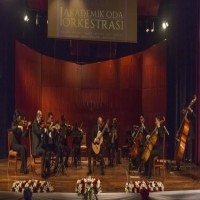
Onur Zahal, 1985 yılında Hatay'da doğmuştur. İlkokulu, Derme İlkokulunda; ortaokul ve liseyi ise Malatya Anadolu Lisesinde tamamlamıştır. 2007 yılında İnönü Üniversitesi Müzik Öğretmenliği Programından mezun olan Zahal, MEB bünyesinde Malatya Yazıhan Lisesi'nde müzik öğretmeni olarak göreve başlamıştır. 2010 yılında aynı üniversitenin yüksek lisans programını, Doç. Server Acim danışmalığında tamamlamıştır. Aynı yıl Gaziosmanpaşa Üniversitesi Müzik Eğitimi Anabilim Dalında araştırma görevlisi olarak göreve başlamıştır. 2014 yılında İnönü Üniv. Müzik Eğitimi Anabilim Dalında, Prof. Dr. Turan Sağer danışmanlığında, "Özel yetenek sınavına giren adayların öğrenme stilleri ve bilişsel esneklik düzeyleri arasındaki ilişki" başlıklı tezi ile tamamlayarak doktor unvanı almıştır. Sırasıyla Gaziosmanpaşa Üniversitesi ve İnönü Üniversitesinde doktor öğretim üyeliği görevlerinde bulunmuştur. 2017 yılında ÜAK'ın yazılı ve sözlü sınavlarında başarılı bulunarak, "Müzik Eğitimi" alanında doçent olmuştur. 2023 yılında İnönü Üniversitesi Müzik Eğitimi Anabilim Dalına Profesör olarak atanmıştır. Halihazırda aynı programda görevine devam etmektedir.
Fakülte ve enstitü dergilerinde editör ve editör yardımcılığı görevlerinde bulunmuştur. Birçok doktora ve yüksek lisans tez danışmanlığı yapmıştır. Mütemadiyen sanatsal etkinliklerde icracı olarak görev almaktadır. İyi düzeyde İngilizce bilen Zahal, ağırlıklı olarak çalgı eğitimi, uzaktan müzik eğitimi, müzik eğitiminde araştırma yöntemleri ve tarihsel müzikoloji alanlarında çalışmalarına devam etmektedir.
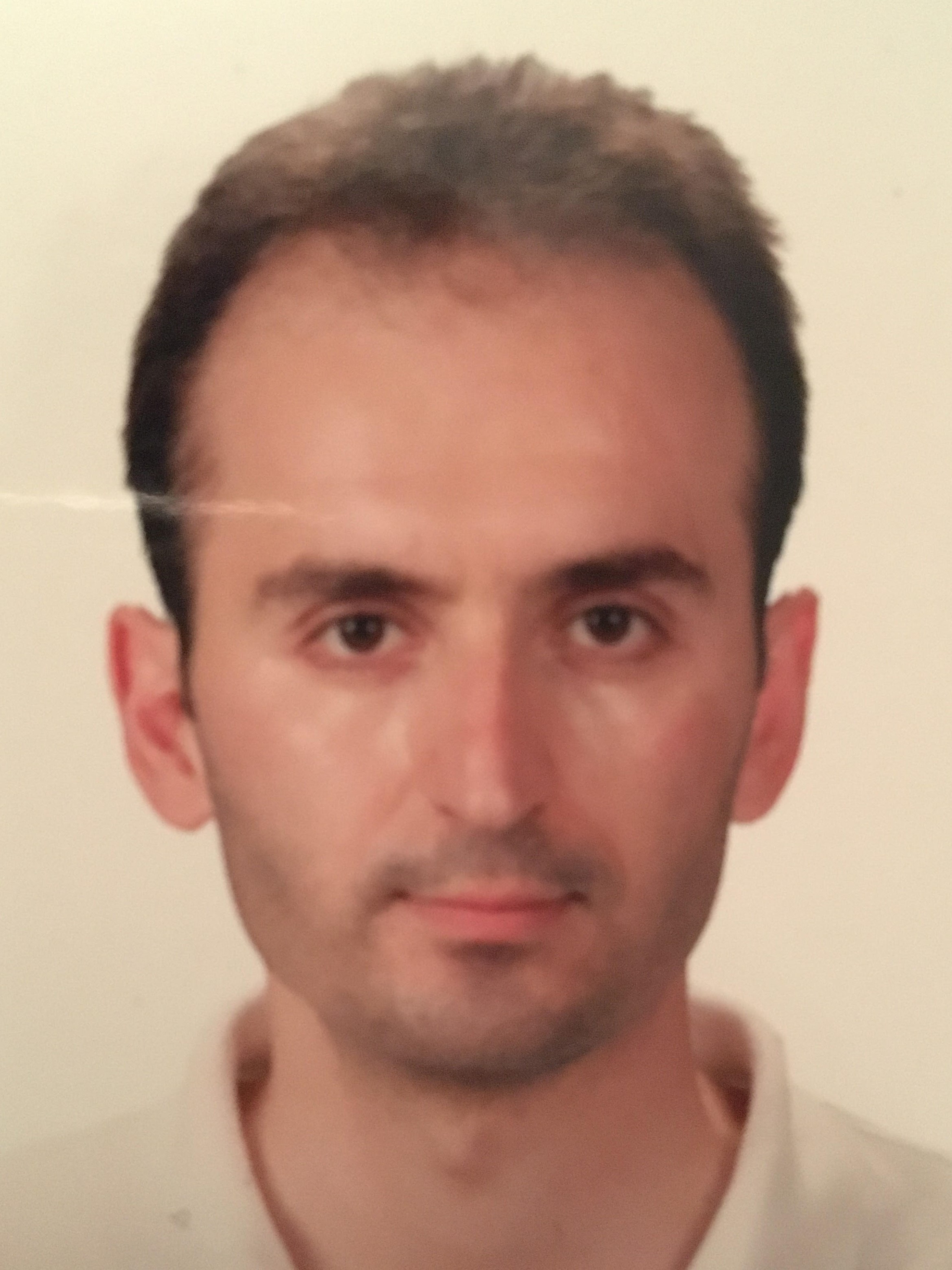

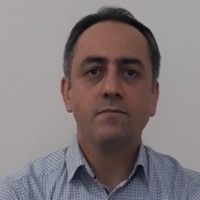

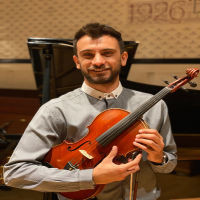


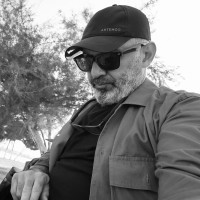
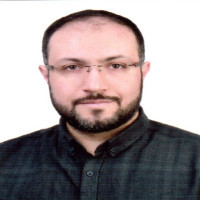
1987 yılında Nevşehir’de doğdu. İlk orta ve lise eğitimini Nevşehir’de tamamladı. Cumhuriyet Üniversitesi İlahiyat Fakültesinden mezun oldu. 2018 yılında Gümüşhane Üniversitesi Sosyal Bilimler Enstitüsünde “Hazîne-i Enderûn-ı Hümâyûn'dan Es-Seyyîd Mîr Mehmed İzzet'in hayatı ve Güfte Mecmuası'nın incelenmesi” başlıklı tezle yüksek lisansını, 2024 yılında Marmara Üniversitesi Sosyal Bilimler Enstitüsünde “Gelenekten günümüze Süleyman Çelebi Mevlidi'nin mukayeseli müzikal analizi” başlıklı tezle doktorasını tamamladı. 2007-2015 Yılları arasında farklı illerde sekiz yıl İmam-Hatiplik görevi yaptı. Ardından 2015 yılında Gümüşhane Üniversitesine geçiş yaparak, ilahiyat Fakültesinde yedi yıl Öğretim Görevlisi olarak görev yaptı. 2021 yılın-da Nevşehir Üniversitesi İlahiyat Fakültesine Öğretim Görevlisi Olarak atandı. Halen burada görevini sürdüren yazar, evli ve iki çocuk babasıdır.
Aim & Scope
Yegah, in 2018 Yegah Musicology Magazine (e-ISSN: 2636-8838) and at the end of 2021, due to foreign characters in its name in international correspondence (e-ISSN: 2792-0178) its name was changed and its new name was "Yegah Musicology Magazine". changed to ".
Our journal continues to be both a national and international academic journal published four times a year in March, June, September and December due to the intense requests for Associate Professor application periods. The articles sent for publication are first submitted to a plagiarism report and then, if there is a requirement for ethical declaration, our authors are notified. The similarity report limit is 20% in our journal. If exceeded, the article is immediately rejected. At the end of these stages, the editorial process begins, and after the necessary corrections, the article is sent to at least two referees. As a result of the feedback, if one rejection is received from the referees, the article is sent to a final referee. Accordingly, the publication of the article can not be published/published after being accepted/rejected. The blind system is preferred in the articles sent to the referees.
Music, music discussions, corpora, translation articles, research articles, criticism and new formations are evaluated in our journal. Research notes, thesis presentations, symposium activity evaluations, etc. in interdisciplinary fields. studies are also included. Each article should contain an abstract/abstract between minimum 250 words in Turkish/English.
Our journal has started to be scanned in the Citation index "Scopus" index as of 15.04.2024. It is also scanned in other international important indexes (EBSCO, Rilm, Music Index with Full Text and DOAJ).
Scope
It is a peer-reviewed journal that carries out its national and international activities.
It broadcasts four times a year in March, June, September and December.
Music, music discussions, compilations, research articles, criticism and new formations are evaluated in our journal. Research notes, thesis presentations, symposium activity evaluations, etc. in interdisciplinary fields. studies are also included.
Authors specify their titles and place of duty together with their names and surnames, and their Orcids if it is optional.
Four articles of an author can be accepted in a year.
Each article should include a title, abstract (150-250) and keywords min. 5 words in both Turkish and English.
An author cannot send an article to the journal for publication for the second time in a year, no matter what. Even if they do, that article will either not be processed or will be rejected outright before the next year.
In addition, as of 2022; After the references in our journal, an "extended Abstract" has become mandatory, and the limit must be at least 800 words. The articles of our authors who send abstracts under this are rejected.
Language and spelling guide is given as a document at the time of sending the articles and "APA" is used as the system according to these principles.
All kinds of publications and copyrights of the published articles belong to Yegâh Music Magazine. All responsibilities of the articles belong to their authors.
Manuscripts are delivered to the editors via the Dergipark system, with the translations in their original texts.
Rules and Evaluation Process
The articles submitted to the journal should not have been published anywhere before and should not have been decided for publication.
Although the written language of the journal is Turkish, our journal has the right to publish an article in both Turkish, English or German, if it wishes, upon the permission of the author.
Articles written in two different languages are published reciprocally on the pages, rather than as separate articles. Article pages in a foreign language are on the left side of the journal and the Turkish version is on the right. However, it should be noted that some words in foreign languages do not have the exact equivalents in our language. For this reason, the authors are asked to make the closest translation suitable for Turkish.
Manuscripts sent to the journal for publication are reviewed by the editorial board in terms of purpose, scope, content, method, and compliance with spelling rules. The articles found suitable are sent to two referees who are experts in their fields to be evaluated in terms of their scientific competencies. If the referee reports are positive, the study is published; If one of the referees gives a negative report, the article is sent to a third referee. In line with the decision of the third referee, it is decided whether the article will be published or not. The study, which is decided to be published, is placed in the publication queue. Referee reports are confidential. The author(s) are answered within the period related to their work.
Authors must take into account the reports of the editorial board and referees. Scientific and legal responsibility of the published articles belongs to the author. The editorial board is free to publish or not publish the submitted article. Submitted articles are non-refundable whether they are published or not. Published articles of authors can be removed from publication in line with the decision of the editorial board. Published articles cannot be withdrawn except by the decision of the Editorial Board. No royalties are paid to authors.
All rights of the published articles belong to Yegâh Music Journal. It is not possible to quote from the articles published in the journal without showing the source.
Broadcast frequency
Yegâh Music Journal is a peer-reviewed academic journal published four times a year.
open access policy
This journal has adopted the policy of providing open access at the time of publication. Open access will increase the global exchange of information and have beneficial consequences for humanity.
Author Guidelines
Instructions for authors
Thank you for choosing to submit your paper to YEGAH. These instructions will provide we have everything required so your paper can keep going through peer review, production and publication smoothly. Please take the time to read and follow them as closely as possible, as doing so will ensure your paper matches the YEGAH’s requirements.
Click first on the link for the Spelling Rules on the bottom. The file you will download is also a template prepared in accordance with the format of our journal. You can add your text. In order to download the Spelling Guide from here, you may need to be logged in with your Dergi Park subscription. If the download does not happen when you click with the left button, press the right button and download with the "Save link as" option. In addition, after you become a member, while sending the article, the "Writing Guide" of our journal will appear on the screen for you to download. You can also download it at that stage. We wish you good work.
Download: 20.05.2025 YMD Spelling Guide
Yegah Music Journal uses OJS to peer review manuscript submissions. Complete guidelines for preparing and submitting your manuscript to this journal are provided below.
About the Journal
Yegah Music Journal (Yegah) is a regional refereed journal which draws its contributions from a wide community of researchers. The main focus of the Yegah is firmly the analysis of Turkish music including Turkic world, eastern and Islamic civilization. Please see the journal's Aims & Scope for information about its focus and peer-review policy.
Publication Language
Please note that this journal publishes manuscripts in English and Turkish. Article Titles and Article Abstracts are both in English and Turkish. Extended abstract in English should be written for articles written in Turkish.
Yegah Music Journal accepts the following types of article: original research articles, reviews articles and book reviews.
It is the purpose of Yegah Music Journal to publish original articles representing a wide range of approaches to the study of music, including historical and archival studies, theory and analysis, anthropology of music, interdisciplinary explorations, critical and interpretive essays, and reports and reflections on Turkish music including Turkic world, eastern and Islamic civilization.
Peer Review and Ethics
All research articles in this journal have undergone rigorous peer review, based on initial editor screening and anonymized refereeing by at least two anonymous referees.
Peer review
YEGAH is committed to peer-review integrity and upholding the highest standards of review. Once your paper has been assessed for suitability by the editor, it will then be double-blind peer-reviewed by anonymous expert referees. Find out more about what to expect during peer review and read our guidance on publishing ethics.
What is peer review, and what do you need to know as an author?
Step 1: Editor assessment
Peer review follows a number of stages, beginning with submitting your article to a journal. At this first stage, the journal editor will decide if it’s suitable for the journal, asking questions such as:
Has the author followed the journal’s guidelines?
Is this the right journal for this article?
Will the journal’s readers find it interesting and useful?
The editor might reject the article immediately, but otherwise, it will move to the next stage, and into peer review.
Step 2: Peer review
The editor will find and contact two or three other researchers or academics who are experts in your field. They will be asked to read your article and advise the editor whether to publish your paper in that journal.
So what are they looking for? This depends on the subject area, but they will be checking:
your work is original or new;
your study design and methodology are appropriate and described so that others could replicate what you’ve done;
you’ve presented your results clearly and appropriately;
your conclusions are reliable and significant;
the work is of a high enough standard to be published in the journal.
Ethics checklist
Before you submit, make sure:
You’ve read the journal’s instructions for authors, and checked and followed any instructions regarding data sets, ethics approval, or statements.
All authors have been named on the paper and the online submission form.
All material has been referenced in the text clearly and thoroughly.
Data has been carefully checked and any supplemental data required by the journal included.
Any relevant interests have been declared to the journal.
You’ve obtained (written) permission to reuse any figures, tables, and data sets.
You’ve only submitted the paper to one journal at a time.
You’ve notified all the co-authors that the paper has been submitted.
Preparing Your Paper
Title
(Trebuchet MS, 14 font size, bold, left-justified, only the first letter of the title is capital and the others are lower cases excluding special names) (Türkçe Yazım Klavuzu İçin Tıklayınız).
Author Affiliation Details
Names and institutional affiliations – including country – and addresses of all contributing authors are required.
Author’s Name and Surname1, Author’s Name and Surname2, left-justified (12 font size)
1Department, University, City, Country, full address, orcid, E-mail (8 font size)
2Department, University, City, Country, full address, orcid, E-mail (8 font size)
Abstract(11 font size): Abstract should be written with 8 font size, Trebuchet MS, justified, single line spacing. The objective, method, and findings are summarized in this section.
Keywords(11 font size)
this section should contain 5 words that are written in 10 font size and separated with commas, full italic and all lower case including names.
Heading 1 (11 font size, bold)
The introduction section should (1) present the scope and objective of the paper and state the problem, (2) briefly review the pertinent literature and (3) provide an overview of the main results of the work.
Heading 2
Heading 3
Methods
The methodology must be clearly stated and described in sufficient detail related to methods or with sufficient references.
Findings And Argument
The findings and arguments of the work should be explicitly described and illustrated. Supporting figures, tables and images of the results (no more than two figures and two tables) may be included in the extended abstract. All the tables, images and figures should be centered. Figures and images should be numbered (see Figure 1 for an example) and figure headers should be placed under the figure or image; as for the tables, they should also be numbered (see Table 1 for an example) and the table header should be placed at the top. References (if any) of the tables, figures, and images should be presented right under the tables, figures, and images in the form of author surname and publication date.
set your figure here.
Figure 1. Type your caption here
Table 1. Type your title here.
set your table here.
Conclusions
Conclusions should include (1) the principles and generalizations inferred from the results, (2) any exceptions to, or problems with these principles and generalizations, (3) theoretical and/or practical implications of the work, and (5) conclusions drawn and recommendations.
References
References should be listed in alphabetical order and presented in a format according to the Chicago Manual of Style: https://www.chicagomanualofstyle.org/tools_citationguide/citation-guide-2.html
APA and Vancouver of reference styles are also welcome.
Bibliographic Information in Roman Script
Cited references, names, and affiliations must be published in Roman script.
Formatting and Templates
Papers may be submitted in Word format. Figures and tables should be saved separately from the text. To assist you in preparing your paper, we provide formatting template(s). PDF and Word templates are available for this journal.
Biographical note
Please supply a short biographical note for each author.
Figures
Figures should be high quality (1200 dpi for line art, 600 dpi for grayscale and 300 dpi for color, at the correct size). Figures should be supplied in one of our preferred file formats: EPS, or Microsoft Word (DOC or DOCX) files are acceptable for figures that have been drawn in Word.
Submitting Your Paper
Yegah Music Journal uses Dergipark (OJS) to manage the peer-review process.
Publication Charges
There are no submission fees, publication fees or page charges for this journal.
Copyright Options
Copyright allows you to protect your original material, and stop others from using your work without your permission.
Content Access
Yegah is an open-access journal.
Queries
Should you have any queries, please contact with us.
Ethical Principles and Publication Policy
Ethical Principles and Publication Policy
Publication Ethics and Publication Malpractice Statement
Yegah Musicology Journal follows the COPE Code of Conduct and Best Practice Guidelines for Journal Editors and the Code of Conduct for Journal Publishers. Authors, reviewers and editors are expected to follow the best-practice guidelines on ethical behaviour contained therein. A selection of key points is included below, but you should always refer to the two documents listed above for complete details.
Duties of Editors
Fair play and editorial independence
Editors evaluate submitted manuscripts exclusively based on their academic merit (importance, originality, study’s validity, clarity) and their relevance to the journal’s scope, without regard to the author’s race, gender, sexual orientation, ethnic origin, citizenship, religious belief, political philosophy or institutional affiliation. The policies of governments or other agencies outside the journal itself do not determine decisions to edit and publish. The Editor-in-Chief has full authority over the entire editorial content of the journal and the timing of publication of that content.
Confidentiality
Editors and editorial staff will not disclose any information about a submitted manuscript to anyone other than the corresponding author, reviewers, potential reviewers, other editorial advisers, and the publisher, as appropriate.
Disclosure and conflicts of interest
Editors and editorial board members will not use unpublished information disclosed in a submitted manuscript for research purposes without the author’s explicit written consent. Privileged information or ideas obtained by editors handling the manuscript will be kept confidential and not used to their advantage. Editors will recuse themselves from considering manuscripts in which they have conflicts of interest resulting from competitive, collaborative, or other relationships/connections with any of the authors, companies or institutions connected to the papers; instead, they will ask another editorial board member to handle the manuscript.
Publication decisions
The editors ensure that all submitted manuscripts being considered for publication undergo peer review by at least two expert reviewers. The Editor-in-Chief is responsible for deciding which of the manuscripts submitted to the journal will be published, based on the validation of the work in question, its importance to researchers and readers, the reviewers’ comments, and such legal requirements as are currently in force regarding libel, copyright infringement and plagiarism. The Editor-in-Chief may confer with other editors or reviewers in making this decision.
Involvement and cooperation in investigations
Editors (in conjunction with the publisher and society) will take responsive measures when ethical concerns are raised about a submitted manuscript or published paper. Every reported unethical publishing behaviour will be looked into, even if discovered years after publication. Yegah editors follow the COPE Flowcharts when dealing with cases of suspected misconduct. If, on the investigation, the ethical concern is well-founded, a correction, retraction, expression of concern or other note as may be relevant will be published in the journal.
Duties of Reviewers
Contribution to editorial decisions
Peer review assists editors in making editorial decisions and, through editorial communications with authors, may assist authors in improving their manuscripts. Peer review is essential to formal scholarly communication and lies at the heart of scientific endeavour. Yegah shares the view of many that all scholars who wish to contribute to the scientific process must do a fair share of reviewing.
Promptness
Any invited referee who feels unqualified to review the research reported in a manuscript or knows that its prompt review will be impossible should immediately notify the editors and decline the invitation to review so that alternative reviewers can be contacted.
Confidentiality
Any manuscripts received for review are confidential and must be treated as such; they must not be shown to or discussed with others except if authorized by the Editor-in-Chief (who would only do so under exceptional and specific circumstances). This also applies to invited reviewers who decline the review invitation.
Standards of objectivity
Reviews should be conducted objectively, and observations formulated clearly with supporting arguments so that authors can use them to improve the manuscript. Personal criticism of the authors is inappropriate.
Acknowledgement of sources
Reviewers should identify relevant published work that the authors have not cited. Any statement that is an observation, derivation or argument reported in previous publications should be accompanied by the appropriate citation. A reviewer should also notify the editors of any substantial similarity or overlap between the manuscript under consideration and any other (published or unpublished) they have personal knowledge of.
Disclosure and conflicts of interest
Any invited referee who has conflicts of interest resulting from competitive, collaborative, or other relationships or connections with any of the authors, companies or institutions connected to the manuscript and the work described therein should immediately notify the editors to declare their conflicts of interest and decline the invitation to review so that alternative reviewers can be contacted. Unpublished material disclosed in a submitted manuscript must not be used in a reviewer’s research without the express written consent of the authors. Privileged information or ideas obtained through peer review must be kept confidential and not used for the reviewer’s advantage. This also applies to invited reviewers who decline the review invitation.
Duties of Authors
Reporting standards
Authors of original research should present an accurate account of the work performed and the results, followed by an objective discussion of the significance of the work. The manuscript should contain sufficient detail and references to permit others to replicate the work. Review articles should be accurate, objective and comprehensive, while editorial 'opinion' or perspective pieces should be identified. Fraudulent or knowingly inaccurate statements constitute unethical behaviour and are unacceptable.
Data access and retention
Authors may be asked to provide the raw data of their study together with the manuscript for editorial review. They should be prepared to make the data publicly available if practicable. In any event, authors should ensure accessibility of such data to other competent professionals for at least ten years after publication (preferably via an institutional or subject-based data repository or other data centre), provided that the confidentiality of the participants can be protected and legal rights concerning proprietary data do not preclude their release.
Originality and plagiarism
Authors should ensure that they have written and submitted only entirely original works, and if they have used the work and words of others, that this has been appropriately cited. Publications that have been influential in determining the nature of the work reported in the manuscript should also be mentioned. Plagiarism takes many forms, from "passing off" another's paper as the author's own, to copying or paraphrasing substantial parts of another's paper (without attribution), to claiming results from research conducted by others. Plagiarism in all its forms constitutes unethical publishing behaviour and is unacceptable.
Multiple, duplicate, redundant or concurrent submission/publication
Papers describing the same research should not be published in multiple journals or primary publications. Hence, authors should not submit for consideration a manuscript already published in another journal. Submission of a manuscript concurrently to more than one journal is unethical publishing behaviour and unacceptable.
Publishing some kinds of articles (such as clinical guidelines and translations) in multiple journals is sometimes justifiable, provided that certain conditions are met. The authors and editors of the journals concerned must agree to the secondary publication, which must reflect the same data and interpretation of the primary document. The direct reference must be cited in the secondary publication.
Authorship of the manuscript
Only persons who meet these authorship criteria should be listed as authors in the manuscript as they must be able to take public responsibility for the content: (i) made significant contributions to the conception, design, execution, data acquisition, or analysis/interpretation of the study; and (ii) drafted the manuscript or revised it critically for important intellectual content; and (iii) have seen and approved the final version of the paper and agreed to its submission for publication. All persons who made substantial contributions to the work reported in the manuscript (such as technical help, writing and editing assistance, and general support) but who do not meet the criteria for authorship must not be listed as an author but should be acknowledged in the "Acknowledgements" section after their written permission to be named as been obtained. The corresponding author should ensure that all appropriate coauthors (according to the above definition) and no inappropriate co-authors are included in the author list and verify that all coauthors have seen and approved the final version of the manuscript and agreed to its submission for publication.
Disclosure and conflicts of interest
Authors should—at the earliest stage possible (generally by submitting a disclosure form at the time of submission and including a statement in the manuscript)—disclose any conflicts of interest that might be construed to influence the results or their interpretation in the manuscript. Examples of potential conflicts of interest that should be disclosed include financial ones such as honoraria, educational grants or other funding, participation in speakers’ bureaus, membership, employment, consultancies, stock ownership, or other equity interest, and paid expert testimony or patent-licensing arrangements, as well as non-financial ones such as personal or professional relationships, affiliations, knowledge or beliefs in the subject matter or materials discussed in the manuscript. All sources of financial support for the work should be disclosed (including the grant number or other reference number, if any).
Acknowledgement of sources
Authors should ensure that they have properly acknowledged the work of others and cite publications that have been influential in determining the nature of the reported work. Information obtained privately (from conversation, correspondence or discussion with third parties) must not be used or reported without explicit, written permission from the source. Authors should not use information obtained while providing confidential services, such as refereeing manuscripts or grant applications, unless they have obtained the explicit written permission of the author(s) of the work involved in these services.
Hazards and human or animal subjects
If the work involves chemicals, procedures or equipment with any unusual hazards inherent in their use, the authors must identify these in the manuscript. Suppose the work consists of the use of animals or human participants. In that case, the authors should ensure that all procedures comply with relevant laws and institutional guidelines and that the appropriate institutional committee(s) has approved them; the manuscript should contain a statement to this effect. Authors should also include a message in the manuscript that informed consent was obtained for experimentation with human participants. The privacy rights of human participants must always be observed.
Peer review
Authors must participate in the peer review process and cooperate fully by responding promptly to editors’ requests for raw data, clarifications, proof of ethics approval, patient consent and copyright permissions. In the case of a first decision of "revisions necessary", authors should respond to the reviewers’ comments systematically, point by point, and promptly, revising and re-submitting their manuscript to the journal by the deadline.
Fundamental errors in published works
When authors discover significant errors or inaccuracies in their own published work, they must promptly notify the journal’s editors or publisher and cooperate with them to correct the paper as an erratum or retract it. Suppose the editors or publisher learns from a third party that a published work contains a significant error or inaccuracy. In that case, the authors must promptly correct or retract the paper or provide evidence to the journal editors of the correctness of the article.
Duties of the Publisher
Handling of unethical publishing behaviour
In cases of alleged or proven scientific misconduct, fraudulent publication or plagiarism, the publisher, in close collaboration with the editors, will take all appropriate measures to clarify the situation and to amend the article in question. This includes the prompt publication of an erratum, clarification or, in the most severe case, the retraction of the affected work. The publisher and the editors shall take reasonable steps to identify and prevent the publication of papers where research misconduct has occurred and under no circumstances encourage or knowingly allow such misconduct to occur.
Article Processing Charge
All articles published in Yegah Musicology Journal are open-access and available online immediately upon publication. This is made possible by an article-processing charge (APC) that covers the range of publishing services we provide. This includes the online tools for editors and authors, reviewers, editors and reviewers progress payments, article copyediting, production and hosting, layout editing, liaison with abstracting and indexing services, and customer services.
As a matter of ethics, Article Processing Charge is paid when the author uploads the article to the journal management system. No editorial evaluation and review process is initiated without payment. This payment does not indicate that the article uploaded by the author will undoubtedly be published. This payment is only related to the article processing process.
As per the resolution passed by Turkish Higher Education Council at the General Assembly dated March 03, 2019, an article published in Yegah Musicology Journal can be included in the applications (declaration) for associate professorship since the journal falls under the clause of "Journals that charge fees -regardless of acceptance/rejection condition- during application".
"According to the decision taken by the Turkish Higher Education Council in the General Assembly dated 07.03.2019, an article published in the YegahJournal can be used in the applications for associate professorship (declaration) since the article meets the article - journals that receive a fee regardless of the acceptance/rejection decision at the time of application."
Note: YMD reserves the right to offer discounts or no fees (APC) for particular articles or authors.
Article Publication Charge
Yegah Musicology Journal does not charge article publishing fees.
The subject of Changes Made/To be Made in the Journal:
YMD management; when it deems necessary, may change the services offered on the site and the terms of this contract wholly or partially. Changes will be effective from the date of publication on the site. It is the User's responsibility to follow the changes. The User is deemed to have accepted these changes by continuing to benefit from the services offered.
Price Policy
Yegah Musicology Journal has eliminated the risk of becoming a predatory journal by requiring upfront article processing charges, regardless of acceptance or rejection, in line with the recommendations of YÖK, ÜAK, and ULAKBİM. (It is included in the category of "journals that charge publication fees during the application process, regardless of acceptance or rejection" for ÜAK Associate Professorship applications. Therefore, it can be used for all academic applications, academic incentives, and associate professorship applications.) For this reason, the review process for articles will not begin without the required fee payment.
Initially, when articles are uploaded to the system along with other documents, authors are required to pay the article fee to cover processing costs, editorial services, layout, and all other expenses.
"If the article's extended abstract contains a minimum of 800 words and the total length of the text, including the references, exceeds 9,000 words or 40 pages, the author must pay an additional layout fee equal to 10% of the editorial fee. However, under no circumstances will an article be evaluated if it exceeds 50 pages or 10,000 words in total, including the abstract and references. Since such an article is at the level of a book, it is not recommended to be used as an article. Please be sure to calculate the page and word count of your article before sending it."
After the secretariat verifies the information, the authors' articles are first subjected to a similarity report through Ithenticate. Articles with less than 20% similarity are checked for compliance with the writing guide and sent to the editor for scientific evaluation. The editor checks the payment receipt for articles approved by the editor and the peer review process begins. The peer review process will not begin for articles for which the fee has not been paid. In addition, authors will be informed of all necessary developments via the media at this stage.
Accordingly;
1- In case of editorial rejection: 80% of the fee paid by the authors of articles rejected as a result of the editor's evaluation will be refunded. The remaining 20% will be deducted as secretariat, operation, and editorial fees.
2- In case of rejection by reviewers: For authors whose articles are rejected as a result of the evaluations of both the editor and the reviewers, 50% of the fee they paid will be refunded, depending on the reviewers' evaluation. The remaining fee will be deducted as secretariat, editorial review, and operation fees.
Important Note: For any questions regarding the fee, please contact the secretariat in the bottom right corner of the page.
Indexes
Citation Indexes
Other Indexes
Journal Boards
Secretariat






Editor-in-chief"





 Web
Web
Issue Editor





Copy Editors
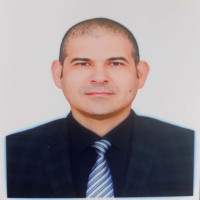
BACKGROUND
Born in 1984 in Izmir, Cihan Çakmak completed his primary and higher education in Izmir. He completed his undergraduate and graduate studies at Ege University, Faculty of Literature, Department of Turkish Language and Literature. In 2010, he became a science specialist by defending his master's thesis titled Turkmen Turkish Subject Analyzed Vocabulary, which he prepared in Ege University Institute of Social Sciences, New Turkish Language Department. Then, in 2014, he defended his master's thesis titled Fatih Kerimi's Hayal Mi? Hakikat Mi? and Andan Bundan completed his doctoral studies by defending his thesis titled Language and Style Analysis on his works.
He started his academic life as a Research Assistant in Çankırı Karatekin University, Faculty of Literature, Department of Turkish Language and Literature between 2009-2013. Then, he worked as an instructor and Assistant Director at Gaziosmanpaşa University TÖMER between 2014-2015. In 2015, he started to work as an Assistant Professor in Manisa Celal Bayar University Faculty of Education, Department of Turkish Education. In the same university, he also held administrative positions such as Vice Dean (2015-2019), Head of Department and Head of Department. In 2018, Cihan ÇAKMAK, who received his Associate Professorship in North-West Kipchak Turkish Dialects and Literatures, is still working as a faculty member in the same institution.
Assoc. Prof. Dr. Cihan Çakmak has 35 articles published in National and International Journals, 6 books and book chapters and 20 papers presented in International Symposiums.
Assoc. Prof. Dr. Cihan Çakmak's studies mainly focus on Tatar Turkish and Literature, Vocabulary, Pseudonyms in Kazan Tatar Turkish and Teaching Turkish to Foreigners.
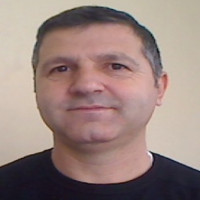
1968 yılında Zonguldak’ta doğdu. İlk, orta ve lise öğrenimini Zonguldak’ta tamamladı. 1989 yılında Buca Eğitim Fakültesi Türk Dili ve Edebiyatı Öğretmenliği Bölümü’nden mezun oldu. 1990–1993 yılları arasında Bitlis Anadolu Lisesi'nde öğretmenlik yaptı.
1993 yılında girdiği sınavı kazanarak Çanakkale Onsekiz Mart Üniversitesi’ne Türk Dili okutmanı olarak atandı. 1996 yılında Trakya Üniversitesi Sosyal Bilimler Enstitüsü’nde Yrd. Doç. Dr. Hasan ÇEBİ yönetiminde “Mustafa Necati Karaer’in Şiiri” başlıklı yüksek lisans tezini tamamladı. 2002 yılında aynı enstitüde Doç. Dr. Recep DUYMAZ yönetiminde “İkinci Yeni Şiiri Çevresinde Ece Ayhan” başlıklı doktora tezini tamamladı.
2002 yılında Çanakkale Onsekiz Mart Üniversitesi Eğitim Fakültesi Türkçe Eğitimi Bölümü’ne Yardımcı Doçent olarak atandı. 10 Mart 2021 tarihinde Türkçe Eğitimi bilim alanında Doçent unvanı aldı ve hâlen aynı bölümde görev yapmaktadır.






1981 yılında Adıyaman'da dünyaya geldi. 1999 yılında Adıyaman Anadolu Lisesinden mezun oldu, aynı yıl Çukurova Üniversitesi Türk Dili ve Edebiyatı bölümünü kazandı, 2003 yılında mezun oldu. 2004 yılında Çukurova Üniversitesi Sosyal Bilimler Enstitüsünde Tezsiz Yüksek Lisans programını tamamladı. Adapazarı, Batman ve Adıyaman'da MEB bağlı çeşitli liselerde edebiyat öğretmenliği yaptı. İstanbul Kuleli Askerî Lisesinde, 2007 yılında yedek subay vasfı ile yabancılara Türkçe öğretimi ve diksiyon öğretmenliği görevini yürüttü.2014 yılında Adıyaman Üniversitesi Sosyal Bilimler Enstitüsü Yeni Türk Edebiyatı dalında yüksek lisansa başlayarak iki yıl sonra mezun oldu. 2016 yılında aynı üniversitede doktora programına başladı, 2021 yılında doktora öğrenimimi tamamladı. Yurt dışı görevi nedeniyle Pakistan, İtalya ve Almanya'da bulundu. 2023 yılında yılın öğretmeni seçildi. Yurt içi ve yurt dışında sempozyumlarda bildiriler sundu. Akademik hakemli dergilerde makaleler yayınladı. TÜBİTAK projeleri, ERASMUS, AB, sosyal sorumluluk projelerinde eğitmenlik, danışmanlık, yürütücülük gibi çeşitli görevlerde rol aldı. Proje yönetimi, yaratıcı yazarlık, akıl oyunları, masal anlatıcılığı, diksiyon, yabancılara Türkçe öğretimi, üstün yetenekliler eğitimi, soru hazırlama, eğitimde drama, beden dili alanlarında eğitimler aldı ve ilgili alanlarda eğiticilik görevleri üstlendi. Kitap, şiir, resim ve kültürel geziler ilgi alanları arasındadır. İyi düzeyde İngilizce biliyor olup evli ve üç çocuk babasıdır.
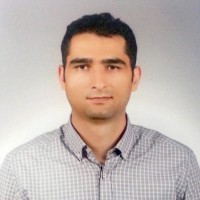
Doç. Dr. Yusuf Mete ELKIRAN, Çanakkale Onsekiz Mart Üniversitesinde Türkçe Eğitimi Ana Bilim Dalı'nda görev yapmaktadır. Okuryazarlık, Ana Dili ve Yabancı Dil Olarak Türkçe Öğretimi, Akademik Yazma ve Öğretim Teknolojileri alanlarında dersler verip araştırmalar yapmaktadır. Uluslararası ve ulusal düzeyde 56 yayına sahiptir. 2007 yılından bu yana bir çok TÜBİTAK ve AB projelerinde uzman, araştırmacı ve eğitmen olarak yer alarak Türkçe eğitimi ve teknoloji entegrasyonu konularında çalışmalar yaptı. Ayrıca TÜBİTAK ve Milli Eğitim Bakanlığı Talim Terbiye’de panelist ve jüri olmak üzere çeşitli görevlerde bulundu. Dünya Dili Türkçe Sempozyumu, Uluslararası Türk Kültürü Sempozyumu ve InSEA Dünya Kongresi 2023'ün düzenleyicisidir. Ayrıca birçok kongre ve sempozyumun organizasyon komitesinde görev almıştır.
Language Editors


Nazan YILDIZ ÇİÇEKÇİ 2004 yılında Karadeniz Teknik Üniversitesi, İngiliz Dili ve Edebiyatı bölümünden mezun oldu. 2005 yılında aynı bölümde araştırma görevlisi olarak çalışmaya başladı. 2007 yılında aynı üniversitede Uygulamalı Dilbilimi alanında yüksek lisansını “Karadeniz Teknik Üniversitesi, İngiliz Dili ve Edebiyatı Anabilim Dalı Edebiyat Derslerindeki Eleştirel Düşünce Ortamını Edebiyat Tabanlı Eleştirel Düşünce Programıyla Geliştirmek üzerine Deneysel Bir Çalışma” adlı teziyle tamamladı. 2008 yılında Hacettepe Üniversitesi, İngiliz Dili ve Edebiyatı bölümünde doktora öğrencisi oldu ve aynı bölümde araştırma görevlisi olarak çalışmaya başladı. 2015 yılında “Geoffrey Chaucer’ın Canterbury Hikayeleri’nde Melezleşme ve Sınıflar Arasındaki Sınırların Yeniden Çizilmesi” adlı teziyle doktora derecesini aldı. Oregon Üniversitesi, Amerikan İngiliz Enstitüsünden eleştirel düşünce becerileri üzerine sertifika sahibidir. Ulusal ve uluslararası yayın ve bildirileri bulunmaktadır. Orta Çağ İngiliz Edebiyatı, Orta Çağ Tarihi, Chaucer, Eski İngiliz Edebiyatı, İngiliz Romanı, Kadın Çalışmaları, Toplumsal Cinsiyet, Karşılaştırmalı Edebiyat, Sömürgecilik ve Sömürgecilik sonrası Dönemi İngiliz Edebiyatı, ve Eleştirel Düşünce ve Edebiyat başlıca çalışma alanlarıdır. Karadeniz Teknik Üniversitesi, İngiliz Dili ve Edebiyatı Bölümü’nde doçent olarak görev yapmaktadır.



Ömer Gökhan Ulum is an Associate Professor in the Department of English Language Teaching at the Faculty of Education, Mersin University, Turkey. His scholarly work is situated at the intersection of language, culture, and education, with a particular focus on language ideology, English as a foreign language (EFL), gender studies, women’s issues, ideology, and hegemony. Drawing on critical and sociocultural perspectives, his research critically examines how power relations, social inequalities, and dominant ideologies are constructed, reproduced, and resisted through language and educational practices. Dr. Ulum has a strong commitment to critical pedagogy and participatory approaches, aiming to foster critical awareness, social justice, and transformative learning in both research and teacher education contexts.

Layout


 Web
Web
Last Review


2014 yılında Atatürk Üniversitesi İlköğertim Bölümü’de doktorasını tamamlayan Mertol, Tübitak Doktora araştırma bursu ile New York St. John’s University’de Üstün Zekâlıların Eğitimi konusunda dünyaca ünlü isimlerden biri Güney Koreli Prof.Dr. Shooke Cho ile 8 ay NewYork’ta kalarak çalışmıştır. Kısa bir dönem MEB Özel Eğitim ve Rehberlik Genel Müdürlüğünde Özel Yeteneklilerin Geliştirilmesi Daire başkanlığı yapmıştır. KKTC Yakındoğu Üniversitesi’nde bir yıl süreyle Üstün Zekalılar Öğretmenliği bölümünde yarı zamanlı ders veren Mertol’un özel yeteneklilerin eğitimi ve dikkat ve algısı konusunda çeşitli yayınları bulunmaktadır. Özel eğitim ve özel yetenek konusunda iki bilimsel kitabın editörlüğünde bulunmuştur. Yurt içi ve yurt dışında farklı üniversitelerde ders vermeye eden Mertol, Üç doktora iki tezli yüksek lisans mezunudur. Farklılaştırma, Zenginleştirme ve Sosyal Bilgiler, coğrafya , okul öncesi alanlarında çalışmalara devam etmektedir. Multidisiplinler çalışmalara daha çok ağırlık veren Mertol, Halen Tokat Gaziosmanpaşa Üniversitesi Bölgesel Coğrafya alanında çalışmaktadır. Evli ve iki çocuk babasıdır.

1995 yılında İstanbul’da doğdu. İlk, orta ve lise öğrenimini memleketi Kahramanmaraş’ta tamamladı. 2015-2019 seneleri arasında Gazi Üniversitesi Türk Müziği Konservatuvarını okul birincisi olarak bitirdi. Ardından Hacı Bayram Veli Üniversitesi Lisansüstü Eğitim Enstitüsün Türk Müziği Yüksek Lisans programında “Manisa Müftüsü Ahmed Âlim Efendi'nin hayatı ve mûsikî eserlerinin incelenmesi” adlı tezi ile Yüksek Lisansını 2021 yılında tamamladı. Aynı sene Tokat Gaziosmanpaşa Üniversitesi Lisansüstü Eğitim Enstitüsün Türk Müziği Doktora programına başlayıp “Türk Müziğinde Geçki Teknikleri” isimli tez çalışması ile doktorasını yapmaktadır.
Ney sazına 2010 senesinde Kahramanmaraş’ta Neyzen Mustafa Çam ile başladı. Kısa bir süre sonra hem Kahramanmaraş Mûsikî Derneği şefi Neyzen Bestekâr Bahaiddin Bilginer’le ney derslerine hem de Mûsikî Derneği icrâlarına başladı. Uzun süre bu dernekte icrâlara katıldı ve Neyzen Bestekâr Bahaiddin Bilginer’in tedrîsâtından geçti. Aynı zamanda irtihâline (2024) kadar Kuyumcu Neyzen Metin İSPİR ile de ney çalıştı. Liseden sonra kazandığı Yalova Üniversitesi İlâhiyat Fakültesinde Doç. Dr. Selman Benlioğlu ile ney çalıştı. İlk ciddi tavır, üslup derslerini hocası Doç. Dr. Selman Benlioğlu ile gerçekleştirdi. Daha sonra bir sene kadar bir hoca riyasetinde olmadan çalıştıktan sonra konservatuvara geçmeye bir dönem kala; Neyzen M. Sadreddin ÖZÇİMİ hocanın ayda bir defa olmak suretiyle Kahramanmaraş’ta ney derslerine başlaması üzerine onun tedrisatına girdi. Hocanın 2 sene devam ettiği Kahramanmaraş ney derslerinin hemen hepsine Karabük ve Ankara’dan gidip gelerek katıldı.
2015 senesinde Gazi Üniversitesi Türk Müziği Konservatuvarına başladı. Konservatuvar da Ankara Klasik Türk Müziği Korosu Ney Sanatçısı Tevfik Bilen ile 4 sene ney çalıştı. yaz aylarında İstanbul Üniversitesi Osmanlı Müziği Araştırma Merkezinin 2015 yılının açtığı yaz kursunda M. Sadreddin ÖZÇİMİ’den istifade etmeye devam etti. Konservatuvar ikinci ve üçüncü sınıftayken 2016 ve 2017 yıllarında Konya’da yapılan Şeb-i Arus ihtifallerine misafir neyzen olarak katıldı. Konservatuvarın son iki senesinde Ankara Klasik Türk Müziği Korosu Ses Sanatçısı Neyzen Dr. Timuçin ÇEVİKOĞLU’nun derneğinde onun Mevlevî âyini ve Klasik takım meşklerine devam etti. Ankara’da MEKÜSAV Vakfı (Mevlâna Kültür ve Sanat Vakfı) Mevlevî âyini meşklerine katıldı. Bu Vakıfla bir süre Galata Mevlevîhânesinde âyin icrâlarında bulundu. Kazandığı Gazi Üniversitesi Türk Müziği Konservatuvarını okul birinciliğiyle tamamladı. Yurt içinde birçok konser ve etkinlikte icrâcı oldu.
Sanat öğrenimi hayatı boyunca Udi Necati ÇELİK, Udi Feti BARUT, Neyzen ve Ses Sanatçısı Hüseyin Kudsi SEZGİN, Neyzen Hakan ALVAN, Neyzen Yavuz AKALIN, Tanbûri Kağan ULAŞ, Tanbûri Alper UZKUR ve Rahmetli Ses Sanatçısı Memduh CUMHUR… hocaların lütfetmeleri vesilesi ile onları fırsat buldukça ziyaret ederek onlardan feyz, yeni bilgiler, dersler, tavsiyeler aldı ve almaya devam etmektedir.
Şu anda Tokat Gaziosmanpaşa Üniversitesi Devlet Konservatuvarında Dr. Araştırma Görevlisi olarak görev yapmaktadır. Yayınlanmış 2 makale çalışması bulunmaktadır. Evlidir.
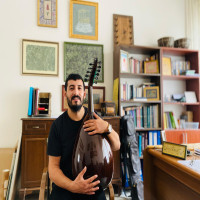
Aziz Destegül 1993 yılında Tokat’ın Çamlıbel İlçesi’nin Kızık Köyü’nde doğdu. İlkokuluna Kızık Köyü’nde başladı. Dört sene burada okuduktan sonra ailesiyle Tokat Merkez’e taşınarak beşinci sınıfta Tokat’a İbn-i Kemal ilkokulunda devam etti. Ortaokul yıllarında Bağlama sazı öğrendi. Ortaokul eğitimini de İbn-i Kemal okulunda tamamladıktan sonra müzik öğretmeninin desteğiyle 2008 yılında Tokat Anadolu Güzel Sanatlar Lisesi’nin açmış olduğu yetenek sınavlarına başvurarak burada okumaya hak kazandı. Lisede dört yıl boyunca ağırlıklı olarak Türk müziğine gönül verip, meslek çalgısı olarak lisede tanıştığı Ud sazını seçti. Aynı zamanda bu derslerin yanı sıra Batı müziği eğitimi de alarak 2012 yılında liseden mezun oldu. 2012 yılında lisans eğitimi için Gazi Üniversitesi Türk Müziği Devlet Konservatuvarı sınavlarına başvurarak çalgı bölümünü kazandı. Üniversitede mesleki sazına Ud ile devam ederek sadece Türk müziği dersleri üzerine eğitim aldı. 2016 yılında lisans eğitimini tamamladı.
Lisans eğitimi bittikten sonra 2016 yılında Gazi Üniversitesi Güzel Sanatlar Enstitüsü Türk Müziği Anabilim Dalında yüksek lisansa başladı. 2019 yılında yüksek lisans eğitiminde “Târihî, Fizikî ve İcrâî Yönleriyle Türk Mûsikîsinde Ud” başlıklı çalışmasıyla 2019 yılında tamamladı. Yüksek lisans eğitiminden sonra 2019 yılının 31 Mayıs tarihinde Gaziosmanpaşa Üniversitesi Devlet Konservatuvarı Türk Müziği Bölümünde Öğretim Görevlisi olarak göreve başladı. Burada Türk müziği ile ilgili dersleri ve meslek çalgısı olan Ud dersleri vermektedir. Şu anda görevini yapmakta olduğu Gaziosmanpaşa Üniversitesi Lisansüstü Eğitim Enstitüsü’nde Türk Müziği Anabilim Dalı’nda 2022 yılında doktora eğitimine başladı. Doktora eğitimini Mayıs 2025’te tamamladı. Görev süresince birçok akademik konser ve bilimsel yayın yapmaya devam

Technical Editor (Cover and Logo Design)
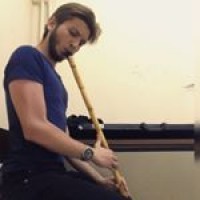



Section Editors

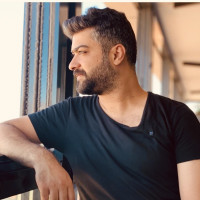


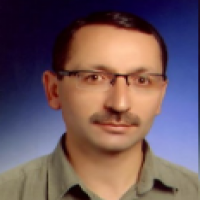





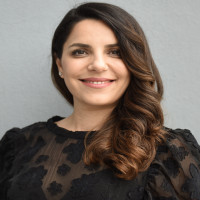

Prof. Dr. H. Zeynep RUSU, eğitim hayatına Dokuz Eylül Devlet Konservatuvarı Trompet Sanat Dalı'nda başlamıştır. Lisans eğitimini Anadolu Üniversitesi Devlet Konservatuvarı'nda tamamladıktan sonra A.B.D'deki Michigan State University College of Music'te yüksek lisans, University of Cincinnati College-Conservatory of Music'te ise müzik doktorası eğitimini tamamlamıştır. 2005 yılından beri Anadolu Üniversitesi Trompet Sanat Dalı'nda öğretim üyesi olarak çalışan RUSU, 2022 yılında profesör ünvanını almış ve halen aynı kurumda, eğitim, araştırma ve performans faaliyetlerine devam etmektedir; özellikle müzik performansı, müzik fizyolojisi ve müzik alanında diğer disiplinlerarası konulara ilgi duymakta, ağırlıklı olarak bu konularla ilgili araştırma ve yayınlar yapmaktadır.
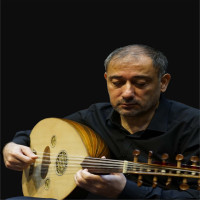
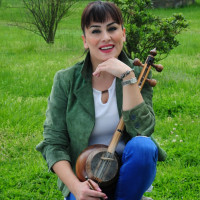

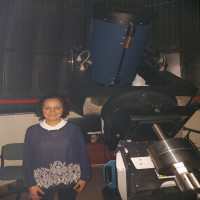







 Web
Web
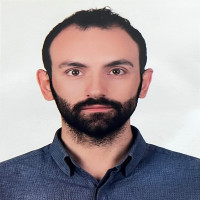
Doç. Dr. Selman Benlioğlu, İstanbul Medeniyet Üniversitesi İslami İlimler Fakültesi Siyer-i Nebi ve İslam Tarihi Anabilim Dalı'nda öğretim üyesidir. Araştırma alanları arasında Osmanlı dönemi müzik tarihi, iktidar-müzik ilişkileri, dini musiki formları ve güfte mecmuaları yer almaktadır. Yayımlanan çalışmaları arasında Saray ve Musiki: III. Selim ve II. Mahmud Dönemlerinde Musikinin Himayesi (İstanbul: Dergah Yayınları, 2018) başlıklı kitap ile “Sarayda Düzenlenen Tarikat Âyinleri Işığında III. Selim’in Tekke Müziğiyle İlişkisi” (2018), “Mevlid Nasıl Okunurdu? Yazma Nüshalardaki Makam Kayıtları Üzerine Bir Değerlendirme” (2022), “Mevlevî Usulü Teravih: Çeşitlilik Bağlamında Kasımpaşa Mevlevîhânesi’nden Teravihe Mahsus Âyin Mecmuası” (2022) ve “Eski Alışkanlıklar, Yeni İmkânlar: Perde Kayıtlı Bir Âyin Mecmuası” (2022) gibi makaleleri bulunmaktadır.
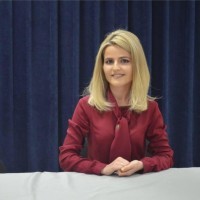






LİSE: İzmir Işılay Saygın Anadolu Güzel Sanatlar Lisesi,
LİSANS: Gazi Üniversitesi Eğitim Fakültesi Güzel Sanatlar Eğitimi Bölümü Müzik Eğitimi Anabilim Dalı,
YÜKSEK LİSANS - DOKTORA: Gazi Üniversitesi Eğitim Bilimleri Enstitüsü Güzel Sanatlar Eğitimi Anabilim Dalı Müzik Öğretmenliği Bilim Dalı
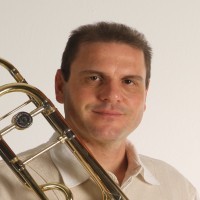

https://unisis.ege.edu.tr/researcher=esin.de.thorpe.millard


Editorial Board
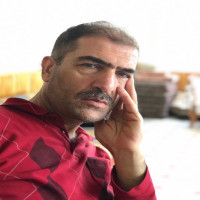
1968 yılında Elazığ’ın Palu İlçesi’ne bağlı Karacabağ Köyü’nde dünyaya geldi. İlk, orta ve lise tahsilimi Kovancılar İlçesi’nde tamamladıktan sonra 1985 yılında kazanmış olduğu Atatürk Üniversitesi İlahiyat Fakültesi’nden 1990 yılında mezun oldu. 1992-93 yılları arasında askerlik görevini “Kısa Dönem” olarak ifa edip aynı yılın Aralık ayında Karakoçan Yatılı İlköğretim Bölge Okulu’nda öğretmen olarak göreve başladı. 1996 yılında Fırat Üniversitesi İlahiyat Fakültesi’ne, Türk Din Mûsikîsi Anabilim Dalı’nda “Araştırma Görevlisi” olarak geçiş yaptı. Aynı yıl Süleyman Demirel Üniversitesi, Sosyal Bilimler Enstitüsü, Türk Din Mûsikîsi Anabilim Dalı’nda başlamış olduğu Yüksek Lisans Programı’ndan 1998 yılında tamamladığı “Bestekâr, Şeyh Çâlâkzâde Mustafa Efendi Hayatı, Mûsikîsi ve Eserleri” adlı tezle mezun oldu. Aradan geçen üç yılın ardından 2001 yılında Ankara Üniversitesi, Sosyal Bilimler Enstitüsü, Türk Din Mûsikîsi Anabilim Dalı’nda başlamış olduğu Doktora Programı’ndan da 2007 yılında tamamladığı “XIX. Yüzyıl İstanbul’unda Tekke Mûsikîsi” adlı tezle mezun oldu. 2009 yılında aynı zamanda şu an kadrosunun da olduğu Fırat Üniversitesi Devlet Konservatuvarı’na Yardımcı Doçent olarak geçiş yaptı. 2010 yılında atandığı “Konservatuvar Müdürlüğü” görevinden 11 yıllık bir sürenin ardından ayrıldı ve aynı yıl (2021) yine aynı kurumun “Bölüm Başkanlığı” görevine getirildi. 15.08.2018 tarihinde “İslam Tarihi ve Sanatları Bilim/Sanat” alanında “Doçent” unvanı almaya hak kazandı. Mûsikî - özellikle de dînî Türk mûsikîsi - ile ilgili kitap, makale ve bildiri gibi çalışmaları bulunan yazar, evli ve bir erkek çocuk babasıdır.

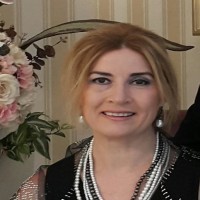
 Web
Web



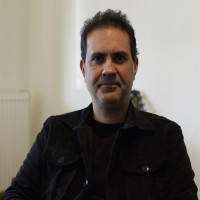
Advisory Board

 Web
Web

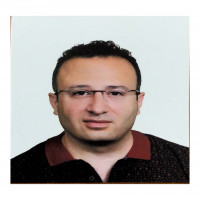



1973 yılında Ankara’da doğdu. İlk, orta ve lise tahsilini Ankara’da tamamladı. 1997 yılında Selçuk Üniversitesi Eğitim Fakültesi Güzel Sanatlar Eğitimi Bölümü Müzik Eğitimi Anabilim Dalı’nın açmış olduğu özel yetenek sınavlarına girdi ve başarılı oldu. 2001 yılında bu anabilim dalından derece ile mezun olduktan sonra Konya’nın Altınekin ilçesinde MEB’na bağlı bir ortaokula müzik öğretmeni olarak atandı. Aynı yıl mezun olduğu kurumda yüksek lisans eğitimine de başladı. Kısa süreli müzik öğretmenliği görevinden sonra 2001 yılı sonunda Selçuk Üniversitesi Sosyal Bilimler Enstitüsü bünyesinde açılan sınavı kazanarak Araştırma Görevlisi oldu. 2005 yılında yüksek lisans, 2012 yılında doktora eğitimlerini tamamladı.
Türk Halk Müziği ve Bağlama ile ilgili ulusal ve uluslararası çapta makaleler, kitaplar/kitap bölümleri, bildiriler yayımlamış olan araştırmacı hem eğitimci hem icracı yönüyle ülke çapında düzenlenen yarışmalara hazırladığı solist ve ekiplerle pek çok ödül de almıştır. Yerel ve ulusal kanallarda da halk müziği geleneği ve icrasıyla ilgili çeşitli programların yanında çeşitli ulusal ve uluslararası bilimsel toplantılara da konuşmacı olarak davet edilmiştir. 2014 yılında “Bağlama İçin Etüt, Egzersiz ve Eserler” adlı bir kitabı yayınlanmıştır. 2015 yılında Türk Halk Müziği alanında Doçent unvanı almıştır. 2021 yılında Türk Halk Müziği ve Bağlama Eğitimi alanlarındaki çalışmaları sonucunda Profesörlük kadrosuna atanmıştır. Ulusal çapta hazırladığı ve yoğun ilgi gören Yâre, Nasihat, Hasat, Turna, Yol gibi konserlerin yanında uluslararası alanda da ilgi gören Mozaik konser serisi başta olmak üzere birçok konser projesine imza atmış ve 2022 yılında Berlin Europe Projekt ile Mozaik-İpek Yolu Konserini gerçekleştirmiştir.
2021 yılında Aksaray Valiliği tarafından Yunus Emre Yılı vesilesiyle hazırlanan Yunus İçin Söyle(Gel Gör Beni Aşk Neyledi) adlı projenin müzik yönetmenliğini ve 2022 yılında Konya’da gerçekleştirilen 5. İslami Dayanışma Oyunları jenerik müziklerinin müzik yönetmenliğini yapmıştır.
Sayısız müzik eğitimcisi ve akademisyen yetiştiren Özdek, Hâlen Necmettin Erbakan Üniversitesi’ne bağlı Ahmet Keleşoğlu Eğitim Fakültesi’nde Güzel Sanatlar Eğitimi Bölümü Müzik Eğitimi Ana Bilim Dalı'nda görev yapmakta Türk Halk Müziği ve Bağlama ile ilgili lisans ve lisans üstü dersleri yürütmekte ve tez danışmanlığı yapmaktadır. Çalışmalarında Türk halk müziği, bağlama ve eğitimi, halk müziği çalgıları ve eğitimi, gibi konulara yer vermektedir.
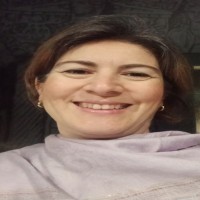

He was born in Çorum in 1974. He completed his primary, middle, and high school education in Bursa. In 1992, he entered the Bursa Metropolitan Municipality Conservatory, completing four years of vocal training under the supervision of Erdinç Çelikkol. He learned the style of Tekke Music from Hafız Recep Camcı. He began his ney (reed flute) training in 1990 and continued it with Neyzen Ömer Erdoğdular in 2000. He started working as a religious official in Bursa Merkez in 1996. In 1998, he graduated from Uludağ University, Faculty of Theology, with a thesis titled "Late Period Tekke Music." In 1998, he was appointed as a research assistant of Turkish Religious Music at Gazi University, Faculty of Theology. He completed his master's degree in 2000 at Marmara University, Institute of Social Sciences, with the thesis "The Work Titled Risâle-i Mûsikî by Kırşehirli Nizâmeddin Ibn Yûsuf," and his doctorate in 2007 with the thesis "Abdülkâdir Merâgî And His Câmiu’l-Elhân," under the supervision of Assist. Prof. Dr. Nuri Özcan. He compiled hundreds of hymns from Anatolia and the Balkans. He has twenty-seven albums. In 2024, Sezikli, who became a professor, moved to Yalova University, Faculty of Islamic Sciences, and was then appointed as the Dean of the Faculty of Art, Design, and Architecture at Istanbul Medeniyet University in the same year.






Müziğe olan ilgi ve yeteneğini erken yaşta besteler yaparak gösteren Çağlak, 5 yaşında ailesi tarafından keman çalgısına yönlendirilerek çalışmalarını Önder Mustul ile sürdürdü. 2013 yılında Ankara Güzel Sanatlar ve Spor Lisesi’nden mezun oldu. Bu süreçte müziksel işitme okuma ve yazma eğitimini Güneş Apaydın'dan alıp, keman çalışmalarını Muhammedjan Turdiev ile sürdüren Çağlak, Manuel Solans ve Ellen Jewet ile de çalışma fırsatı buldu. Yurtiçi ve yurtdışı birçok konserde solist, korist ve orkestra üyesi olarak yer aldı. 2012 yılında Comenius projesi kapsamında Almanya’nın Weimar kentinde kemanı ile oda müziği grubuna, 2013 yılında ise Polonya’nın Bydgoszcz kentinde gerçekleşen Bydgoszcz Musical Impressions festivalinde caz vokal grubuna piyanosu ile eşlik etti. 2013 yılında Gazi Üniversitesi G.E.F. Müzik Eğitimi Anabilim Dalı’nı kazandı. 2017 yılında bu kurumda keman resitali verdi ve aynı yıl Gazi Üniversitesi Müzik Eğitimi Anabilim Dalı Orkestrası Mezuniyet Konseri’nde solist olarak Mozart’ın 3 numaralı Keman Konçertosu’nu Sam Franko'nun kadansı ile seslendirdi. 2017 yılında bölümünü ikincilikle bitirerek mezun oldu. 2018 yılında “Tree Trio” grubu ile ulusal ve uluslararası konser ve projelerde yer aldı. Gazi Üniversitesi Eğitim Bilimleri Enstitüsü Müzik Eğitimi Bilim Dalı’nda minimal müzik alanına duyduğu ilgi sonucu minimalist besteci “Philip Glass’ın Keman Piyano Sonatı’nın Form, Armonik, Teknik ve Müzikal Analizi” adlı tezi ile 2019 yılında yüksek lisans eğitimini tamamladı. Gazi Gençlik Oda Orkestrası, WBA Oda Orkestrası, Agora Gençlik ve Senfoni Orkestrası, Musa Göçmen Senfoni Orkestrası gibi orkestralarda kemanı ile yer alarak uluslararası tanınan birçok solist ve şef ile çalışma fırsatı buldu. Kemanı ve piyanosu ile yer aldığı konserlerin yanı sıra oda müziği, eğitim müziği ve popüler müziğe yönelik besteleri de bulunmaktadır. 2019 yılında Hitit Üniversitesi Güzel Sanatlar, Tasarım ve Mimarlık Fakültesi’nde Araştırma Görevlisi olarak görev yapmaya başladı. 2022 yılında Yunus Emre’nin şiirlerinin kanun sanatçısı Göksel Baktagir’in ezgileri ile buluştuğu "Yunus&Aşk Yunus Emre Oratoryosu" isimli albümde orkestra üyesi olarak yer aldı. 2019 yılında Gazi Üniversitesi Eğitim Bilimleri Enstitüsü Müzik Eğitimi Bilim Dalı’nda kazandığı doktora programını ise, 2023 yılında “Keman Eğitiminde Doğaçlamaya Yönelik Bir Model Önerisi ve Uygulamadaki Görünümü” adlı tezi ile tamamladı. Hâlen Hitit Üniversitesi’nde görev yapmakta olan Çağlak, sanatsal ve akademik çalışmalarını gerçekleştirmeye devam etmektedir.
International Editorial Board
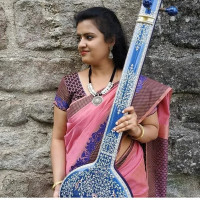
Bhavana Pradyumna is an accomplished Carnatic musician and Bharata Natyam dancer. She is the founding president of the Indian Conservatory of Paris (ICParis), an internationally renowned organization promoting Indian classical music, dance, and arts in France. Bhavana holds a Master’s degree in Carnatic music from the University of Madras and was an affiliated artist at Emory University in Atlanta, USA, from 2011 to 2014.
After relocating to France, she made history by introducing Carnatic classical music, Veena, Konnakkol, and Odissi dance at the Jean Weiner Conservatory in Bobigny, marking the first time these Indian art forms were integrated into a French conservatory curriculum. This 9-year program, accredited by the French Ministry of Culture, offers a diploma.
Bhavana collaborates closely with the Indian Embassy in France and UNESCO through the Permanent Delegation of India, organizing seminars and cultural programs. She is also the author of the pioneering children's music book Children’s Carnatic, available on Amazon and Google in multiple languages, including English, Spanish, French, Sanskrit, Hindi, Tamil, Telugu, and Kannada.
One of her key projects is the Bhagavad-Gita Doodles, recognized by the Indian embassies in France, Finland, and Estonia. This project brings the essence of the Bhagavad Gita to life through weekly videos. Bhavana has performed extensively over the last 18 years across India, the US, and Europe and is an accredited All India Radio artist, providing vocal support for various Bharata Natyam, Kuchipudi, and Mohiniyattam performances.
In 2024, Bhavana curated the Indian cultural segment at the Olympic Fan Zone in Paris, showcasing over 180 artists and 250 performances. This earned recognition from the Honorable Prime Minister of India, Narendra Modi.
Bhavana has also developed credit certification programs with institutions like SVYASA and Sivananda to promote Indian music internationally. She has co-authored works such as Approach to Music: The Indian Way volumes 1 and 2, and Raga & Yoga, available in both French and English.
As part of her ongoing initiatives, she signed an MoU with Tamil Nadu University to offer certificate programs in Indian classical music, dance, and arts through ICParis. Graduates of these programs can further their studies in India, pursuing master’s and doctoral degrees.
She has received numerous accolades, including the SIWAA Youth Icon Award, the Global Performer’s Award 2020, and the Bharat Gaurav Puraskar 2021.
For more on Bhavana Pradyumna’s work, visit www.indianconservatoryofparis.com.


Professor of Department of Special Piano at the Kharkiv I.P.Kotlyarevsky National University of Arts, PhD in Arts. In 1987 she won first prize and the title winner at the first inter-republican Piano Competition H.Eller in Tallinn (Estonia). She graduated from the Kharkiv I.P. Kotlyarevsky Institute of Arts in the class professor M. Yeshchenko (1990) and then post – training at the Kiev State Conservatory named Tchaikovsky in the class of Honored Artist of Ukraine, professor I. Ryabov (1992). She was awarded the Gold Medal for outstanding achievements in study and work (1991). In 2001 she defended her thesis “L. van Beethoven and the piano culture of the late XVIII – early XIX century. (The problem of the formation of piano texture)” on the specialty “musical art” (Ph.D) in National P. I. Тchaikovsky Musik Academy Ukraine. She performs solo and ensemble concert programs, conducts master classes in Ukraine and abroad. Conducts scientific activity, being the author of scientific manuals on the history of piano performance art and more than more than 40 scientific articles published in Ukraine, Great Britain, Germany, Czech Republic, Romania, Turkey. She takes part in international and national scientific conferences. Among her students there are laureates of international competitions in Ukraine, Spain, Italy, Austria, Lithuania, candidates of art history PhD.

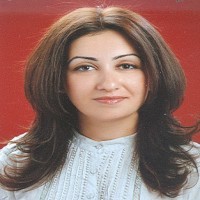
ÖZGEÇMİŞ
1. Adı Soyadı: Başak Gorgoretti
2. Doğum Tarihi: 04 Kasım 1976
3. Ünvanı: Doçent Doktor
4. Öğrenim Durumu
Derece Alan Üniversite Yıl
Lisans Müzik Öğretmenliği Gazi Üniversitesi 1999
Yüksek Lisans Müzik Eğitimi Gazi Üniversitesi 2002
Doktora Müzik Eğitimi Gazi Üniversitesi 2007
5. Akademik Ünvanlar
• Öğretim Görevlisi Doktor: Eylül 2008-2014
• Yardımcı Doçent Doktor : Nisan 2014-Ağustos 2020
• Doçent Doktor: Ağustos 2020 devam ediyor
6. Yönetilen Yüksek Lisans ve Doktora Tezleri
Soykunt, N. (2015). 8. Sınıf Müzik Dersi Kapsamında Uygulanan Psiko-Motor Beceri Geliştirici Etkinlikler ile İlgili Öğretmen ve Öğrenci Görüşlerinin İncelenmesi, Doğu Akdeniz Üniversitesi, Gazi Mağusa.
7. Yayınlar
7.1 Uluslararası hakemli dergilerde yayınlanan makaleler
• Gorgoretti̇, B . (2020). Milli Kimliğin Biçimlenmesinde Müzik Eğitiminin Rolü . Anadolu University Journal of Education Faculty , 4 (2) , 143-162 . DOI: 10.34056/aujef.621120.
• Gorgoretti, B. (2019) The use of technology in music education in North Cyprus according to student music teachers. South African Journal of Education, Volume, 39,(1).
• Müezzinoğlu, A., Gorgoretti, B. (2019). The New Music Curriculum with a New Music Education Concept. Fine Arts, Volume 14 (3).
• Soykunt, N. & Gorgoretti, B. (2019) Views of Music Teachers on Psycho-motor Activities. Tarih, Kültür ve Sanat Araştırmaları Dergisi. 6, (8).
• Gorgoretti, Başak. (2013) The Technical Analyse of Violoncello Etudes. Eurasian Journal of Educational Research, Issue, 53/A,257-274
• Berki, T., Güler, B. & Tunca, O. (2008). An "Etude Analysis Model" Related To Cello Education. Turkish Journal of Music Education, Electronic Article-1 (2)
7.2 Ulusal hakemli dergilerde yayınlanan makaleler
7.3 Uluslararası/ulusal bilimsel toplantılarda sunulan ve bildiri kitabında basılan bildiriler
• Müezzinoğlu, A., Gorgoretti, B. (2019). Besteci Kamran Aziz’in Eserleri Üzerine İnceleme. ISME Legacy Conference Bildiriler Kitabı. 4-7 Eylül 2019. İstanbul, Türkiye.
• Gorgoretti, B., Alpagut, U. (2017). Türk Müzik Kültürünü Günümüz Öğretim Yaklaşımlarıyla Aktarma. Proocedings of the 1st Musical Traditions in Globalizing World International Scientific and Practical Conference Proceedings Book. Bakü, Azerbaycan.
• Gorgoretti, B. (2016). Prospective Music Teachers' Perceptions on Musical Creativity. Proceedings of the 24th EAS Conference Vilnius, Lithuania.
• Gorgoretti, B., Pilli, O. (2012). Pre-Service Teachers Views on the Effectiveness of Teaching Practice Course. Cyprus International Conference on Educational Research, Middle East University, North Cyprus.
• Gorgoretti, B., Akın, Ö. (2010). Müzik Öğretmenlerinin Orff ve Kodaly Yaklaşımlarını Kullanma Durumları (Denizli ve KKTC Örneği). 9. Ulusal Müzik Eğitimi Sempozyumu, Marmara Üniversitesi, İstanbul.
• Güler, B., Nalbantoğlu, E. (2009). K.K.T.C. ve T.C. Müzik Eğitimi Sorunlarına Karşılaştırmalı Bir Bakış, 8. Ulusal Müzik Eğitimi Sempozyumu, Samsun.
• Güler, B., Pilli, O. (2009). Eğitim Fakültelerinde Bit Kullanımı: KKTC Örneği. 9th International Educational Technology Conference, Hacettepe Üniversitesi, Ankara.
• Berki, T., Çilden, Ş., & Güler, B. (2006) Ülkemiz Müzik Eğitimi Anabilim Dallarında Kullanılan Viyolonsel Etüdleri Üzerine Bir İnceleme. 7. Ulusal Müzik Eğitimi Sempozyumu, Pamukkale Üniversitesi, Denizli.
7.4 Özetler
• Güler, B., Pilli, O. (2009). Student-Teachers’ Attitudes and Beliefs About Using Technology In Teaching. I. Uluslararası Yaşayan Kuramcılar Konferansı: Howard Gardner, Mehmet Akif Ersoy Üniversitesi, Burdur.
• Gorgoretti, B.(2011). İlköğretim Müzik Dersi Öğretim Programı Müziksel Yaratıcılık Alanı Boyutlarının Analizi. I. Uluslararası Eğitim Programları ve Öğretim Kongresi, Anadolu Üniversitesi, Eskişehir.
7.5 Diğer Yayınlar
• Gorgoretti, Başak. “Notalar Rüyama Girdi” (2021) basım aşamasında Eğitenkitap Yayınevi
• Müzik 1 Ders kitabı (2017) KKTC Milli Eğitim ve Kültür Bakanlığı
• Müzik 1 Öğretmen El Kitabı (2017) KKTC Milli Eğitim ve Kültür Bakanlığı
• Müzik 2 Ders kitabı (2017) KKTC Milli Eğitim ve Kültür Bakanlığı
• Müzik 2 Öğretmen El Kitabı (2017) KKTC Milli Eğitim ve Kültür Bakanlığı
• Temel Eğitim Programı Müzik Dersi Öğretim Programı 1.-8. Sınıflar (2017). KKTC Milli Eğitim ve Kültür Bakanlığı
• Müzik 3 Ders kitabı (2018) KKTC Milli Eğitim ve Kültür Bakanlığı
• Müzik 3 Öğretmen El Kitabı (2018) KKTC Milli Eğitim ve Kültür Bakanlığı
• Müzik 4 Ders kitabı (2017) KKTC Milli Eğitim ve Kültür Bakanlığı
• Müzik 4 Öğretmen El Kitabı (2017) KKTC Milli Eğitim ve Kültür Bakanlığı
• Müzik 5 Ders kitabı (2017) KKTC Milli Eğitim ve Kültür Bakanlığı
• Müzik 5 Öğretmen El Kitabı (2017) KKTC Milli Eğitim ve Kültür Bakanlığı
• Müzik 6 Ders kitabı (2017) KKTC Milli Eğitim ve Kültür Bakanlığı
• Müzik 6 Öğretmen El Kitabı (2017) KKTC Milli Eğitim ve Kültür Bakanlığı
• Müzik 7 Ders kitabı (2017) KKTC Milli Eğitim ve Kültür Bakanlığı
• Müzik 7 Öğretmen El Kitabı (2017) KKTC Milli Eğitim ve Kültür Bakanlığı
• Müzik 8 Ders kitabı (2018) KKTC Milli Eğitim ve Kültür Bakanlığı
• Müzik 8 Öğretmen El Kitabı (2018) KKTC Milli Eğitim ve Kültür Bakanlığı
8. Projeler
KKTC Milli eğitim Bakanlığı Temel Eğitim Program Geliştirme Projesi
9. A) İdari Görevler
• Doğu Akdeniz Üniversitesi Eğitim Fakültesi Güzel Sanatlar Eğitimi Bölüm Başkanlığı (Şubat 2012-Haziran 2015)
B) Komisyon Görevleri
C) Kurul Üyelikleri
• Fakülte Kurulu Üyesi (2012-2015)
• Bölüm Kurulu Üyesi (Eylül 2008-devam ediyor)
D) Üniversite içi diğer faaliyetler
• Fakülte Tanıtım Temsilcisi (2011-2012)
E) Üniversite dışına yapılan faaliyetler
• SOS kreşi müzik eğitimi danışmanlığı (2016)
• KKTC Milli Eğitim Bakanlığı Kamu Hizmet Komisyonu Öğretmen Sınavı müzik sorularının hazırlanması (2013)
10. Bilimsel Kuruluşlara Üyelikler
• European Association for Music in Schools (2015-2016)
• International Society for Music Education (2017 devam ediyor)
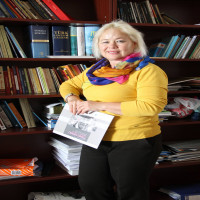
ÖZ GEÇMİŞ
Adı Soyadı: Ranetta GAFAROVA
Unvan: Doç. Dr.
Doğum Yeri ve Tarihi: Özbekistan/Namangan - 08.12.1965
Medeni Durumu: Evli
Öğrenim Durumu:
Tel: +79788560652
E-posta: ranetta@bk.ru ; ranettagafarova@gmail.com
Derece Bölüm/Program Üniversite Başlama -Bitirme Yılı
Lisans Rus Dili ve Edebiyati Namangan Devlet Eğitim Üniversitesi (Özbekistan) (1982-1986)
Y. Lisans Rus Dili ve Edebiyati Namangan Devlet Eğitim Üniversitesi (Özbekistan) (1982-1986)
Doktora Rus Dili ve Edebiyati
Harkov Devlet Eğitim Üniversitesi (Ukrayna) (2008 – 2010)
PHD Doktora Rus Filolojisi 2011
Çalıştığı Kurumlar:
Görev/Unvan Görev Yeri Yıl
Öğretmen Namangan ş. 49 Lise (Özbekistan) 1986-1994
Personel Müdürü Kırım Mühendislik ve Pedagoji Üniversitesi (Kırım) 1995-2009
Doç. Dr. Kırım Mühendislik ve Pedagoji Üniversitesi (Kırım) 2009-2014
Kırım Tatar ve Türk Filoloji Fakültesi Dekan Kırım Mühendislik ve Pedagoji Üniversitesi (Kırım) 2011-2014
Doç. Dr. Ardahan Üniversitesi (Türkiye) 2013-2019
Müdür İsmail Gaspıralı adına Avrasya İnkişaf Enstitüsü (Moskova/ Rusya) 2019 bugüne kadar
Akademik Görevler:
Görev/Unvan Görev Yeri Yıl
Personel Müdürü Kırım Mühendislik ve Pedagoji Üniversitesi (Kırım) 1995-2009
Doç. Dr. Kırım Mühendislik ve Pedagoji Üniversitesi (Kırım) 2009-2014
Kırım Tatar ve Türk Filoloji Fakültesi Dekan Kırım Mühendislik ve Pedagoji Üniversitesi (Kırım) 2011-2014
Doç. Dr. Ardahan Üniversitesi (Türkiye) 2013-2019
Müdür İsmail Gaspıralı adına Avrasya İnkişaf Enstitüsü (Moskova/ Rusya) 2019 bugüne kadar
Doktora Tez Konusu ve Tez Danışmanı:
“Rus dilinde sonek univerblerin semantik ve kelime yapısının özellikleri”, Danışman: Prof. Dr. Aleksandr PETROV
Projeler:
1. "Cengiz Dağcı müze-kütüphanesi", müdürü/ Kırım Türkleri Kültür ve Yardımlaşma Derneği İstanbul Şubesi (araştırma projesi), 2012, Kırım / Simferopol
2. “Noman Çelebicihan müze kütüphanesi'; müdürü / Emel Kırım Vakfı (araştırma projesi), 2013, Kırım / Simferopol)
3. İsmail Gaspıralı araştırma merkezi , yöneticisi/ Türk Ocakları İstanbul Şubesi (araştırma projesi. 2014, Kırım Simferopol)
4. Uluslararası çalışma projesi “Türk Dillerin dijital kılavuzu” (Türkiye/Rusya: 2019)
5. Video Dersler You Tube kanalı “Rusça Akademisi”, “Rusça Grameri” 2020
Çağrılı Konferans ve Seminerler
1. 2. Uluslararası Türk Dili ve Edebiyatı Sempozyumu (Dil ve Üslup İncelemeleri), Süleyman Demirel Üniversitesi Fen-Edebiyat Fakültesi Türk Dili ve Edebiyatı Bölümü, Isparta (Türkiye)19-21 Ekim 2011.
2. I. Uluslararası Türkoloji Çalıştay: Yunus Emre Enstitü, İstanbul (Türkiye) 19-23 Nisan 2012
3. 10. Uluslararası Türk Dünyası Sosyal Bilimler Kongresi, Kırım Mühendislik ve Pedagoji Üniversitesi, Simferopol (Kırım), 28 – 2 Ağustos/Eylül 2012.
4. VI Uluslararası sempozyum “ADAM: Karadeniz Bölgesel İşbirliği Bağlamında Türkiye, Kırım ve Ukrayna İlişkilerinin Dünü, Bugünü ve Geleceği Konferansı, Kırım Mühendislik ve Pedagoji Üniversitesi, Simferopol (Kırım), 16-18 Eylül 2012.
5. Uluslararası Sempozyum «Vefatının Birinci Yıldönümünde Cengiz Dağcı Uluslararası Sempozyumu», Simferopol (Kırım) 21 – 23 Eylül 2012.
6. III. Uluslararası Türkoloji Sempozyumu “Kırım Tatarlarının Dünü, Bugünü Yarını” 15–17 Ekim 2012.
7. Uluslararası Kongre «“İslam’la Yenilenme ve Birlik: İsmail Bey Gaspıralı Kongresi”nde» Istanbul (Türkiye) – Simferopol (Kırım) 30- 01 Kasım/Aralık, 2012.
8. VI Uluslararası Bilim Sempozyum ‘Modern Slav dillerinde sözcük ve gramer yenilikler’ Dneproperovsk (Ukrayna), 18 –19 Nisan 2013.
9. Х Uluslararası Sempozyum «Çok ırklı bir dünyada Kültürlerin Diyaloğu» Simferopol, Kırım (24 – 27 Nisan 2013 г.);
10. I Uluslararası Kadın Sempozyumu ve Sanat Çalıştayı “Cinsiyetlerarası Eşitsizliğin ve Kadına Yönelik Şiddetin Önlenmesinde Devlet Politikaları ve Sivil Sorumluluk’, Giresun (Türkiye) 5-9 Mayıs 2013.
11. Uluslararası Sempozyum "Sürgünün acılarını sarmak için; çok çalışmak ve öğrenmek" Simferopol, Kırım 16 – 18 Mayıs2013.
12. Uluslararası Sempozyumu “Tastarakay’dan Keloğlan’a Türk Masalları’ Simferopol, Kırım 04– 06 Haziran 2013.
13. III. Uluslararası Konferansı ‘Tatarların Tarihi Mirası’, Eskişehir (Türkiye), 9-11 Ekim 2013.
14. ‘Uluslararası Türk Kültürü Kongresi’ Eskişehir (Türkiye) 4-8 Kasım 2013
15. Uluslararası Konferans ‘Açık öğretimde 30 yıl’ Eskişehir (Türkiye) 5-9 Kasım. 2013.
16. VI. Uluslararası Dünya Dili Türkçe Sempozyumu, Bursa (Türkiye) 4-7 Aralık 2013
17. Panel ‘Cengiz Dağcı Paneli’. İpek Üniversitesi (İstanbul), 7 Mart 2014.
18. ‘Ateş Çemberinde bir Millet: Kırım Türkleri tarihinde Büyükşehir Belediyesi (Eskişehir), 22 Mart 2014.
19. ‘Kırım I Konuşuyor Konferans serisi’ İstanbul Aydın Üniversitesi-Florya Yerleşkesi Tarihi Ve Güncel Varlığıyla Kırım Üniversiteler, 24 Nisan2014.
20. ‘Kırım ve Ukrayna’ İstanbul Üniversitesi Avrasya Enstitüsü, Maltepe Türk Ocağı Gençlik kolları ile Panel, 24 Nisan 2014.
21. Konferans ‘Soy Kırım’, Ardahan Üniversitesi, 23 Mayıs 2014.
22. ‘İSMAİL BEY GASPIRALI ve Türk Dünyası Konferans’, Ege Üniversitesi (İzmir), 28-30 Mayıs 2014
23. Kafkasya Üniversiteler Birliği (KÜNİB) IV. Olağan Kongresi(Ankara), 29 Mayıs 2014
24. Konferans ‘Soy Kırım’, Karadeniz Teknik Üniversitesi (Trabzon), 13 Haziran 2014.
25. Konferans ‘Soy Kırım’, Türk Ocakları (Rize) 14 Haziran 2014.
26. Uluslararası Sempozyumu Gaspıralı ‘İsmail Bey,in ölümünün 100. Yılında Dilde, Fikirde, İşte Birlik,te neredeyiz?’ İstanbul Üniversitesi(İstanbul), 15-17 Ekim 2014
27. Konferans ‘Kırım, Kırım Türkleri: geçmişi, bugünü…’. Süleyman Demirel Üniversitesi (Isparta), 20 Ekim 2014.
28. Uluslararası Sempozyumu Tarihte Ahıska Türkleri Sorunu: Dünü, Bugünü, Yarını, Uludağ Üniversitesi, 14-16 Kasım 2014 (Bursa)
29. Konferans ‘İsmayil Bey Gaspıralı: aydınlanma ve adalet arayışı’, Ardahan Üniversitesi (Ardahan), 27 Kasım 2014.
30. Konferans ‘Kırım ve Gaspıralı’, Aydın Ocakları (Konya) 09 Aralık 2014.
31. Konferans ‘İsmail Bey Gaspıralı: aydınlanma ve adalet arayışı’, Necmettin Erbakan Üniversitesi (Konya), 10 Aralık 2014.
32. Konferans ‘İsmail Bey Gaspıralı: aydınlanma ve adalet arayışı’, Anadolu Üniversitesi (Eskişehir) 13 Aralık 2014.
33. Konferans ‘İsmail Bey Gaspıralı: aydınlanma ve adalet arayışı’,. Recep Tayıp Erdoğan Üniversitesi (Rize), 15 Aralık 2014.
34. Konferans ‘İsmayil Bey Gaspıralı: aydınlanma ve adalet arayışı’, Gebze Belediyesi, Gebze Kent Konseyi, Türk Dünyası Akraba Toplulukları Çalışma Komisyonu, Gebze Kırım Türkleri Derneği (Gebze) 20 Aralık 2014
35. Uluslararası Sempozyum ‘Halk Kültüründe kadın Uluslararsı’, Harran Üniversitesi, Motif Vakfı, Şanlıurfa, 13-15 Mart 2015
36. Panel 'Kırımın gözyaşları' Süleyman Demirel Üniversitesi, Isparta, 16 Mart 2015
37. Panel ‘Navrez bayramı Türk dünyasında’, Ardahan Üniversitesi, 23 Mart 2015
38. Konferans ‘Kırım bizim kaderimiz’, Güneş Vakıf, Erzurum, 27 Mart 2015
39. Konferans ‘Dünden bugüne Kırım’. Çankırı Karatekin Üniversitesi, Edebiyat Fakültesi, Çankırı, 06 Nisan 2015.
40. Panel ‘Rus Modernizmi Özellikleri ve Avrasyacılığa kadar. Gumilev. Oğul ve baba’, Ardahan Üniversitesi, 16 Nisan 2015
41. Uluslar arası Bilim Konferans ‘Yüksek Eğitim: Bugünkü gelişmeler’, Çerkas Üniversitesi (Ukrayna), 24 Nisan 2015
42. Uluslararası Avrasya Eğitim Federasyon kongresi ‘Türk Dünyası Eğitimcilerinin problemleri’, Ankara, 27 Nisan 2015
43. Konferans ‘Slav şiir Dünyası’, Ardahan Üniversitesi, 29 Nisan 2015
44. Konferans ‘Kırım konusu bugünde’, Fırat Üniversitesi, Öğrenci Konseyi, Elyaziğ, 14 Mayıs 2015
45. Devletlerarası Kırım, sürgün ve İsmail Gaspıralı kongresi, Yurtdışı Türkler Toplulukları, İstanbul Üniversitesi, Edebiyat Fakültesi, İstanbul, 15-16 Mayıs, 2015
46. Konferans ‘Kırım Tatarların sürgünü’, Giresun Üniversitesi Türk Dünya Araştırmaları Topluluğu, KARASAM, Giresun, 18 Mayıs, 2015.
47. Uluslar arası Bilim Sempozyum ‘VI İ. Gurji – tarihçi ve felsefeci’, Çerkas Üniversitesi (Ukrayna). 14-18 Eylül 2015.
48. III Uluslararası Türk Dünyası Kültür Kongresi ‘Dede Korkut ve Türk Dünyası’, Çeşme/İzmir/Türkiye, 19 -23 Ekim 2015
49. Uluslararası “İpek Yolu’nun Yükselişi ve Türk Dünyası” Bilgi Şöleni/ Ankara/Türkiye, 3-5 Mart 2016
50. Halk Aile Kültüründe Uluslararası Sempozyumu, Edirne/Türkiye, 25-27 Mart 2016
51. IV Uluslar arası Bilim Konferans “Eğitimin gelişmesi ve durumu: aktüel soruları” Kiev/ Ukrayna, 3-4 Nisan 2016
52. Uluslararası II Ortadoğu Sempozyumu Kırıkkale/Türkiye, 04-07 Mayıs 2016
53. Konferans “İsmaıl Gaspıralı ve Cengiz Dağcı: Kırım gayesi”, Pecep Tayıp Erdoğan Üniversite, Rize/Türkiye, 11 Mayıs 2016
54. 4.Uluslararası Türk Şöleni, Erzurum/Türkiye, 17-19 Mayıs 2016
55. 59. Uluslararası Sürekli Altay Araştırmaları Konferansı (PIAC), Ardahan Üniversite, Ardahan/Türkiye, 26-28 Haziran 2016
56. 4 Kazan Uluslararası Halk Kültürü Sempozyumu, Hacettepe Üniversite/ Türkiye, 29 Eylül-1 Ekim 2016
57. Konferans “1 Türkoloji Kongre 1926 ve Bekir Çobanzade”, Ardahan Üniversite, Ardahan/Türkiye, 01 Aralık 2016
58. I Uluslar arası Demokrasi Sempozyum ‘Darbeler ve Tepkiler’, Giresun Üniversite/ Türkiye, 15-16 Aralık 2016
59. Konferans “Gaspıralı’nın izinde”, Gaziosmanpaşa Üniversite, Tokat/Türkiye, 11 Mayıs 2017
60. Konferans “geçmişten Günümüze Kırım”, Ordu Üniversite, Ordu/Türkiye, 18 Mayıs 2017
61. Uluslararası Çalıştay ‘Bolu’dan Türk Dünyasına Köroğlu çalışmalarının dünü, bugünü, yarını’, Abant İzzet Baysal Üniversite/ Bolu, 15-16 eylül, 2017
62. 6 Uluslararası Türkiyat Araştırma Sempozyumu ‘199. Yılında Sovyet İhtilali ve Türk Dünyası’, Hacettepe Üniversite/ Ankara, 25-27 Ekim, 2017.
63. 100. Yılında Kırım Halk Cumhuriyeti, Kurultay ve Numan Çelebicihan’ın Şehadeti Uluslararası Sempozyumu, 23-24 Şubat 2018/ Kırım Türkleri Kültür ve Yardımlaşma Derneği İstanbul Şubesi
64. Milli Birlik ve Beraberlik 2 Uluslararası Sempozyumu, İLESAM, Ankara, 22-23 Mart 2018.
65. IX Türk Dünyası Edebiyat Dergileri Kongresi, Kastamonu/Türkiye, 17-19 Nisan,2018.
66. Uluslararası İlişkiler Sempozyumu ”Uluslararası Göç ve Ulusal Güvenlik”, Ardahan Üniversitesi/Türkiye, 7-9 Mayıs,2018.
67. VII Uluslararası sempozyumu “TURKLANG 2019”, Simferopol/ Kırım, 03.10-05.10 2019
68. 17. Uluslararası Türk Dünyası Sosyal Bilimler Kongresi, İstanbul Üniversitesi (Türkiye), 30.10-02.11.2019
69. Uluslararası online forum “MMCO 2020”, Moskova, 26.04.-30.04.2020 1 kısmı, 28.05.-31.05. 2020 2 kısmı.
70. Neriman Nerimanov 150 yıl dönemi Uluslararası Sempozyum, Batum/ Gürcistan, 26.05-28.05.2020
71. Uluslararası online sempozyum “Kültür arasında komünikasyon ve turizm”, Taşkent / Özbekistan, 15.06. -19.05.2020
Yayınlamış Makaleler:
A. Uluslar arası
1. “Türkçe Konuşan Öğrencilere Modern Rus Dilinin Çalışma Dersin Özellikleri” (Специфика изучения курса современного русского языка в тюркоязычной аудитории), Karadeniz Bölgesinin halklın kültürü Bilimsel Dergisi,, 27. Simferopol, 2002, 151-157. S.
2. “Deyimlerin yapısında millilik ve Kültürel özellikleri” (Национально-культурные компоненты в структурах фразеологических единиц), Tavriya Üniversitesinin Bilimler Dergisi, Cilt 15 (54), Sayı 1, 2002, 54-57. S.
3. “Hassa ve Nitelik İnsanın karakterini açıklayan Deyimler” (Фразеологические единицы, характеризующие свойства и качества характера человека в русском языке), KMPÜ Bilimler Dergis, 5. S., 2004, Simferopol, 155-159. S.
4. “Kırım Tatar ve Rus dilinde Kadın kavramı karşılaştırması (Аксиологические особенности концепта «женщина» в крымскотатарском, русском языках), Cilt 18 (57), 3 S., Simferopol, 2005, 12-19. S.
5. “Univerbasyon – kelime yapısının bir tipi (Универбация как один видов компрессивного словообразования), Karadeniz Bölgesinin halklın kültürü Bilimsel Dergisi, 91. S., Simferopol, 2006, 36-39. S.
6. «Univerblerin emsile nispetleri» (Парадигматические отношения универбатов), Dnepropetrovsk Üniversitesi Bilimler Dergisi, 4/2 S., Dneproperovsk, 2007, 55-60 s.
7. “Univerblerin Rus Dilinde Leksikoloji betimlemesi” (Лексикографическое описание универбов в русском языке), Karadeniz Bölgesinin halklın kültürü Bilimsel Dergisi, 119. S., Simferopol, 37-40 s.
8. “Univerblerin Sentaks temeli” (Синтаксическая база универбатов), Lugansk Üniversitesi Bilimsel Dergisi, 11(128) S., Lugansk, 2007, 6-14 s.
9. “Karışık Univerblerinin Form ve Semantik nispetleri” (Формально-семантические отношения в структуре составных универбатов), Nejin Üniversitesi Bilimsel Dergisi, 17 S., Nejin, 2008, 64-72 s.
10. “Sonek Univerblerin kelime yapısının sentagma tipi” (Типовые словообразовательные цепочки суффиксальных универбов русского языка), Harkov Üniversitesi Bilimsel Dergisi, 1(38) S., Harkov, 2009, 48-52 s.
11. “Rus Dilinde Univerblerin Bir konuda üstünde grupları” (Тематические группы суффиксальных универбов русского языка), Dnepropetrovsk Üniversitesi Bilimsel Dergisi, Dnepropetrovsk, 2009, 179-182 s.
12. “Sıfırlı sonekli Kısaltma univerblerin usul yapımı (Усечение с нулевой суффиксацией как способ образования универбов), Karadeniz Bölgesinin halklın kültürü Bilimsel Dergisi, 173. S., Simferopol, 65-68 s.
13. “Rus Dilinde Univerblerin Bir konuda üstünde alan ve mekân anlatan grupları” (Тематическая группа суффиксальных универбов русского языка «наименование места»), KMRÜ Bilimsel Dergisi, 21 S., Simferopol, 8-12 s.
14. “Rus Dilinde Sonekli Univerblerinin nispetleri gerekçesini göstermesi” (Мотивационные отношения суффиксальных универбов русского языка), Harkov Üniversitesi Bilimsel Dergisi, 1(38) S., Harkov, 2010, 25-29 s.
15. “Sonekli Univerblerin üslûpbilim tefrik” (Стилистическая дифференциация суффиксальных универбов), KırımUçpedgiz, Simferopol, 2010, 84-86 s.
16. “Rus Dilinde Sonekli Univerblerin kelime yapısının çekim örneği” (Словообразовательные парадигмы суффиксальных универбов русского языка), Berdansk Üniversitesi Bilimsel Dergisi, 23 S., Cilt 2, Berdansk, 2010, 600-607 s.
17. “Rus Dilinde Üniverblerin Kullanan ve kullanmayan sonekleri” (Продуктивные и непродуктивне суффиксы универбов русского языка), Tavriya Üniversitesi Bilimsel Dergisi, Cilt 23 (62), 3 S., Simferopol, 2010, 137-136 s.
18. “Sonek Univerbler Cümle ve takım temel yapısı” (Суффиксальные универбы, образованные на базе словосочетаний с предикатными актантами), Dnepropetrovsk Üniversitesi Bilimsel Dergisi, 16 S., Cilt 18, Dnepropetrovsk, 2010, 90-97 s.
19. “Rus Dilinde Sonekli Univerblerin üslûpbilim özellikleri” (Стилистические особенности суффиксальных универбов русского языка), Donesk Üniversitesi Bilimsel Dergisi, 1 S., Donesk, 2011, 140-146 s.
20. “Bir Konuda Üstünde Grupların Aşama Sırası: Rus dilinde sonekli Univerbler” (Иерархия тематических групп (на материале суффиксальных универбов русского языка), Kiev Milli Eğitim Üniversitesi Bilimsel Dergisi, 9 S., Cilt 9, Kiev, 2011, 54-59 s.
21. “Rus Dilinde Sonekli Univerblerinin kelime seçilmesi” (Избирательность суффиксальных универбов русского языка), Karadeniz Bölgesinin halklın kültürü Bilimsel Dergisi, 211. S., Simferopol, 2011, 25-29 s.
22. “Pragmatizm Bakımında Okazionalizm Yapıları: reklam metinlerin örneklerinde” (Окказиональные образования в прагматическом аспекте (на материале рекламных текстов и номенклатурных знаков), Karadeniz Bölgesinin halklın kültürü Bilimsel Dergisi, 224. S., Simferopol, 2012, 158-162 s.
23. “Rus Dilinde Sonekli Univerblerin deyimleşmesi” (Идиоматичность суффиксальныхунивербов русского языка), Batı Slav Filolojisi Donesk Üniversitesi Bilimsel Dergisi, 22 S., Gorlovka, 2012, 100-104 s.
24. “Cengiz Dağcı edebi dilinde renk kelimelerin semantik özellikleri: O Topraklar bizimdi eserinin metinleri” (Лексико-семантическое поле цвета в художественной речи Дженгиза Дагджи: на материале романа «Эти земли были наши»), Çardaş Filoloji: sorular ve gelişmeler. KMPÜ Bilimsel Dergisi, 2013, Simferopol, 26-27 s.
25. “Kırım Tatar Folklor metinlerinde renk kelimeleri milli kimliği özellikleri” (Этнокультурнеы особенности цветообозначения в крымскотатарском фольклоре на материале пословиц и народных песен), Karadeniz Bölgesinin halklın kültürü Bilimsel Dergisi, 264. S., Simferopol, 2013, 84-88 s.
26. “Kırım Tatar Halk Edebiyatında Renk Belirtilerini Etnokültürel özellikleri (Halk Türküleri ile Deyimler)”, Karadeniz Uluslar arası Sosyal Bilimler Dergisi, 6 S., Volume 21, Ankara, 2013, 34-42 s.
27. “Kırımın Çok etnik mekanında Türk ve Slav dillerinin işlemesi” (Функционирование тюркских и славянских языков в полиэтничном пространстве Крыма: на примере крымскотатарского и русского языков), KMPÜ Bilimsel Dergisi, Simferopol, 2013, 96-98 s.
28. “A. Puşkin eserinde «Erzurum Yoluculukları» Türkiye kavramı” (Турция в языковом сознании А.С. Пушкина на материале произведения «Путешествие в Арзум»), Çerkas Üniversitesi Bilimsel Dergisi, Çerkas, 2015, 30-33 s.
29. “Türkiye’nin A.S. Puşkin’in Dil Bilicindeki Yeri (‘Erzurum Yolculuğu’ eserin materiyalleri esasında)”, Prof. Dr. Hacali Necefoğlu’na Armağan, İzmir, 2016, 187-197 s.
30. ‘Kırım Tarihi’nde İpek Yolu’na Dayanan Miras’, Yükselen İpek Yolu İPEK YOLU’NDA KÜLTÜR VE SANAT,3. CİLT, Ankara, 2016, 355-369
31. ‘ Türk Dünyasında Kırım Tatar Türk Kadınlarının Sosyal ve Siyasi Hayatımızda Oynadıklar Rol’ , Türk Dünyasında Kadın Algısı, 2 Cilt, Manisa Celal Bayar Üniversite Yayınları, Manisa, 2016, 819-827s.
32. “Sovyet Döneminin Politikası ve Kırım Tatar Türk Aydınların Faciası (1917-1918), 6 Uluslararası Türkiyat Araştırma Sempozyumu ‘199. Yılında Sovyet İhtilali ve Türk Dünyası’, Hacettepe Üniversite/ Ankara, 25-27 Ekim, 2017 (yayınlanıyor)
33. “Kırım Tatar Folklorunda Köroğlu Anlatıları ile ilgili yapılan Çalışmaların Dünü, Bugünü, Yarını”, Uluslararası Çalıştay ‘Bolu’dan Türk Dünyasına Köroğlu çalışmalarının dünü, bugünü, yarını’, Abant İzzet Baysal Üniversite/ Bolu, 15-16 Eylül, 2017, Bildiri Kitabı, Bolu Belediyesi
34. “Türkiye’de Kırımın Bibliyografyası (1207-2017 yıllar), 2 Milli Birlik ve Beraberlik Uluslararası Sempozyumu, Ankara/Atalay Matbaacılık, 2018, 184-199 s.
35. NUMAN ÇELEBİ CİHANIN “ANT ETKENMEN” KIRIM TATAR MİLLİ MARŞ’ININ TARİH VE ANLAM İNCELEMES, Karadeniz Uluslararası Bilimsel Dergi, Yıl 2019, Cilt , Sayı 42, Sayfalar 239 – 250.
36. “İsmail Gaspıralı ve Neriman Nerimanov: birleşen aydın yolları”, THE IV INTERNATIONAL SCIENTIFIC CONFERENCE DEDICATED TO THE 150th ANNIVERSARY OF NARIMAN NARIMANOV, Batum/ Gürcistan, 2020, s. 21-31.
37. “Kırım Tatar Türk Müslüman kadınların sosyal statüsü: tarih sayfaları” Женское и мужское в традиционной и современной культуре: сохранение, фиксация, понимание. Материалы XIII международной научной конференции РАИЖИ и ИЭА РАН. В 2-х частях / Отв. ред. Н.Л. Пушкарева, сост. А.И. Громова. – М.: ИЭА РАН, 2020. Ч. 1. – 439 с.
38. ‘Şefika Sultan Gaspıralı: Kırım-Tatar Türk Kadınların Milli Lideri’ Bildiri kitabi 18. Sosyal Bilimler Kongresi 12-14 Aralık 2020, İstanbul: 2020: s. 579-587.
39. ‘ Türkçeden Rusça’ya Çeviri Sorunları: Cengiz Dağcı eserleri ‘Korkunç Yıllar’ ve ‘Yurdunu Kaybeden Adam’ ’Uluslararası Yunus Emre ve Dünden Bugüne Türkçe Sempozyum, 10-11 Haziran 2021: Bildiri Kitabı, Erzurum, 2021.
A. Kitaplar
1. Çardaş Rus Dili. Kelime yapısı. (Современный русский язык. Морфемика и словообразование), Dolya, Simferopol, 2012.
2. Gafarova, R., Aliyeva V., İbragımova V., Kırım Tatar İlk okullarda Rus dili geliştirme programları ilkesi (Принцип построения программ по русскому языку в начальных классах для школ с крымскотатарским языком обучения), Uçpedgiz, Simferopol, 2007.
3. Cengiz Dağcı “Korkunç Yıllar” çeviri (Türkçe-Rusça), Simferopol, Forma, 2019, 210 s.
4. Cengiz Dağcı “Onlarda insandı” çeviri (Türkçe-Rusça), neşriyatta, basımda.
Dergi Park Hakemlik
1. KARADENİZ ULUSLARARASI BİLİMSEL DERGİ
2. KÜLTÜRK, TÜRK DİLİ VE EDEBİYATI ARAŞTIRMALARI DERGİSİ
3. AVRASYA İNCELEME DERGİSİ
International Advisory Board
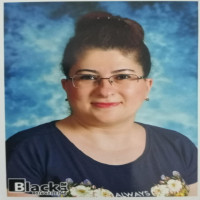

ÖZ GEÇMİŞ
Adı Soyadı: Ranetta GAFAROVA
Unvan: Doç. Dr.
Doğum Yeri ve Tarihi: Özbekistan/Namangan - 08.12.1965
Medeni Durumu: Evli
Öğrenim Durumu:
Tel: +79788560652
E-posta: ranetta@bk.ru ; ranettagafarova@gmail.com
Derece Bölüm/Program Üniversite Başlama -Bitirme Yılı
Lisans Rus Dili ve Edebiyati Namangan Devlet Eğitim Üniversitesi (Özbekistan) (1982-1986)
Y. Lisans Rus Dili ve Edebiyati Namangan Devlet Eğitim Üniversitesi (Özbekistan) (1982-1986)
Doktora Rus Dili ve Edebiyati
Harkov Devlet Eğitim Üniversitesi (Ukrayna) (2008 – 2010)
PHD Doktora Rus Filolojisi 2011
Çalıştığı Kurumlar:
Görev/Unvan Görev Yeri Yıl
Öğretmen Namangan ş. 49 Lise (Özbekistan) 1986-1994
Personel Müdürü Kırım Mühendislik ve Pedagoji Üniversitesi (Kırım) 1995-2009
Doç. Dr. Kırım Mühendislik ve Pedagoji Üniversitesi (Kırım) 2009-2014
Kırım Tatar ve Türk Filoloji Fakültesi Dekan Kırım Mühendislik ve Pedagoji Üniversitesi (Kırım) 2011-2014
Doç. Dr. Ardahan Üniversitesi (Türkiye) 2013-2019
Müdür İsmail Gaspıralı adına Avrasya İnkişaf Enstitüsü (Moskova/ Rusya) 2019 bugüne kadar
Akademik Görevler:
Görev/Unvan Görev Yeri Yıl
Personel Müdürü Kırım Mühendislik ve Pedagoji Üniversitesi (Kırım) 1995-2009
Doç. Dr. Kırım Mühendislik ve Pedagoji Üniversitesi (Kırım) 2009-2014
Kırım Tatar ve Türk Filoloji Fakültesi Dekan Kırım Mühendislik ve Pedagoji Üniversitesi (Kırım) 2011-2014
Doç. Dr. Ardahan Üniversitesi (Türkiye) 2013-2019
Müdür İsmail Gaspıralı adına Avrasya İnkişaf Enstitüsü (Moskova/ Rusya) 2019 bugüne kadar
Doktora Tez Konusu ve Tez Danışmanı:
“Rus dilinde sonek univerblerin semantik ve kelime yapısının özellikleri”, Danışman: Prof. Dr. Aleksandr PETROV
Projeler:
1. "Cengiz Dağcı müze-kütüphanesi", müdürü/ Kırım Türkleri Kültür ve Yardımlaşma Derneği İstanbul Şubesi (araştırma projesi), 2012, Kırım / Simferopol
2. “Noman Çelebicihan müze kütüphanesi'; müdürü / Emel Kırım Vakfı (araştırma projesi), 2013, Kırım / Simferopol)
3. İsmail Gaspıralı araştırma merkezi , yöneticisi/ Türk Ocakları İstanbul Şubesi (araştırma projesi. 2014, Kırım Simferopol)
4. Uluslararası çalışma projesi “Türk Dillerin dijital kılavuzu” (Türkiye/Rusya: 2019)
5. Video Dersler You Tube kanalı “Rusça Akademisi”, “Rusça Grameri” 2020
Çağrılı Konferans ve Seminerler
1. 2. Uluslararası Türk Dili ve Edebiyatı Sempozyumu (Dil ve Üslup İncelemeleri), Süleyman Demirel Üniversitesi Fen-Edebiyat Fakültesi Türk Dili ve Edebiyatı Bölümü, Isparta (Türkiye)19-21 Ekim 2011.
2. I. Uluslararası Türkoloji Çalıştay: Yunus Emre Enstitü, İstanbul (Türkiye) 19-23 Nisan 2012
3. 10. Uluslararası Türk Dünyası Sosyal Bilimler Kongresi, Kırım Mühendislik ve Pedagoji Üniversitesi, Simferopol (Kırım), 28 – 2 Ağustos/Eylül 2012.
4. VI Uluslararası sempozyum “ADAM: Karadeniz Bölgesel İşbirliği Bağlamında Türkiye, Kırım ve Ukrayna İlişkilerinin Dünü, Bugünü ve Geleceği Konferansı, Kırım Mühendislik ve Pedagoji Üniversitesi, Simferopol (Kırım), 16-18 Eylül 2012.
5. Uluslararası Sempozyum «Vefatının Birinci Yıldönümünde Cengiz Dağcı Uluslararası Sempozyumu», Simferopol (Kırım) 21 – 23 Eylül 2012.
6. III. Uluslararası Türkoloji Sempozyumu “Kırım Tatarlarının Dünü, Bugünü Yarını” 15–17 Ekim 2012.
7. Uluslararası Kongre «“İslam’la Yenilenme ve Birlik: İsmail Bey Gaspıralı Kongresi”nde» Istanbul (Türkiye) – Simferopol (Kırım) 30- 01 Kasım/Aralık, 2012.
8. VI Uluslararası Bilim Sempozyum ‘Modern Slav dillerinde sözcük ve gramer yenilikler’ Dneproperovsk (Ukrayna), 18 –19 Nisan 2013.
9. Х Uluslararası Sempozyum «Çok ırklı bir dünyada Kültürlerin Diyaloğu» Simferopol, Kırım (24 – 27 Nisan 2013 г.);
10. I Uluslararası Kadın Sempozyumu ve Sanat Çalıştayı “Cinsiyetlerarası Eşitsizliğin ve Kadına Yönelik Şiddetin Önlenmesinde Devlet Politikaları ve Sivil Sorumluluk’, Giresun (Türkiye) 5-9 Mayıs 2013.
11. Uluslararası Sempozyum "Sürgünün acılarını sarmak için; çok çalışmak ve öğrenmek" Simferopol, Kırım 16 – 18 Mayıs2013.
12. Uluslararası Sempozyumu “Tastarakay’dan Keloğlan’a Türk Masalları’ Simferopol, Kırım 04– 06 Haziran 2013.
13. III. Uluslararası Konferansı ‘Tatarların Tarihi Mirası’, Eskişehir (Türkiye), 9-11 Ekim 2013.
14. ‘Uluslararası Türk Kültürü Kongresi’ Eskişehir (Türkiye) 4-8 Kasım 2013
15. Uluslararası Konferans ‘Açık öğretimde 30 yıl’ Eskişehir (Türkiye) 5-9 Kasım. 2013.
16. VI. Uluslararası Dünya Dili Türkçe Sempozyumu, Bursa (Türkiye) 4-7 Aralık 2013
17. Panel ‘Cengiz Dağcı Paneli’. İpek Üniversitesi (İstanbul), 7 Mart 2014.
18. ‘Ateş Çemberinde bir Millet: Kırım Türkleri tarihinde Büyükşehir Belediyesi (Eskişehir), 22 Mart 2014.
19. ‘Kırım I Konuşuyor Konferans serisi’ İstanbul Aydın Üniversitesi-Florya Yerleşkesi Tarihi Ve Güncel Varlığıyla Kırım Üniversiteler, 24 Nisan2014.
20. ‘Kırım ve Ukrayna’ İstanbul Üniversitesi Avrasya Enstitüsü, Maltepe Türk Ocağı Gençlik kolları ile Panel, 24 Nisan 2014.
21. Konferans ‘Soy Kırım’, Ardahan Üniversitesi, 23 Mayıs 2014.
22. ‘İSMAİL BEY GASPIRALI ve Türk Dünyası Konferans’, Ege Üniversitesi (İzmir), 28-30 Mayıs 2014
23. Kafkasya Üniversiteler Birliği (KÜNİB) IV. Olağan Kongresi(Ankara), 29 Mayıs 2014
24. Konferans ‘Soy Kırım’, Karadeniz Teknik Üniversitesi (Trabzon), 13 Haziran 2014.
25. Konferans ‘Soy Kırım’, Türk Ocakları (Rize) 14 Haziran 2014.
26. Uluslararası Sempozyumu Gaspıralı ‘İsmail Bey,in ölümünün 100. Yılında Dilde, Fikirde, İşte Birlik,te neredeyiz?’ İstanbul Üniversitesi(İstanbul), 15-17 Ekim 2014
27. Konferans ‘Kırım, Kırım Türkleri: geçmişi, bugünü…’. Süleyman Demirel Üniversitesi (Isparta), 20 Ekim 2014.
28. Uluslararası Sempozyumu Tarihte Ahıska Türkleri Sorunu: Dünü, Bugünü, Yarını, Uludağ Üniversitesi, 14-16 Kasım 2014 (Bursa)
29. Konferans ‘İsmayil Bey Gaspıralı: aydınlanma ve adalet arayışı’, Ardahan Üniversitesi (Ardahan), 27 Kasım 2014.
30. Konferans ‘Kırım ve Gaspıralı’, Aydın Ocakları (Konya) 09 Aralık 2014.
31. Konferans ‘İsmail Bey Gaspıralı: aydınlanma ve adalet arayışı’, Necmettin Erbakan Üniversitesi (Konya), 10 Aralık 2014.
32. Konferans ‘İsmail Bey Gaspıralı: aydınlanma ve adalet arayışı’, Anadolu Üniversitesi (Eskişehir) 13 Aralık 2014.
33. Konferans ‘İsmail Bey Gaspıralı: aydınlanma ve adalet arayışı’,. Recep Tayıp Erdoğan Üniversitesi (Rize), 15 Aralık 2014.
34. Konferans ‘İsmayil Bey Gaspıralı: aydınlanma ve adalet arayışı’, Gebze Belediyesi, Gebze Kent Konseyi, Türk Dünyası Akraba Toplulukları Çalışma Komisyonu, Gebze Kırım Türkleri Derneği (Gebze) 20 Aralık 2014
35. Uluslararası Sempozyum ‘Halk Kültüründe kadın Uluslararsı’, Harran Üniversitesi, Motif Vakfı, Şanlıurfa, 13-15 Mart 2015
36. Panel 'Kırımın gözyaşları' Süleyman Demirel Üniversitesi, Isparta, 16 Mart 2015
37. Panel ‘Navrez bayramı Türk dünyasında’, Ardahan Üniversitesi, 23 Mart 2015
38. Konferans ‘Kırım bizim kaderimiz’, Güneş Vakıf, Erzurum, 27 Mart 2015
39. Konferans ‘Dünden bugüne Kırım’. Çankırı Karatekin Üniversitesi, Edebiyat Fakültesi, Çankırı, 06 Nisan 2015.
40. Panel ‘Rus Modernizmi Özellikleri ve Avrasyacılığa kadar. Gumilev. Oğul ve baba’, Ardahan Üniversitesi, 16 Nisan 2015
41. Uluslar arası Bilim Konferans ‘Yüksek Eğitim: Bugünkü gelişmeler’, Çerkas Üniversitesi (Ukrayna), 24 Nisan 2015
42. Uluslararası Avrasya Eğitim Federasyon kongresi ‘Türk Dünyası Eğitimcilerinin problemleri’, Ankara, 27 Nisan 2015
43. Konferans ‘Slav şiir Dünyası’, Ardahan Üniversitesi, 29 Nisan 2015
44. Konferans ‘Kırım konusu bugünde’, Fırat Üniversitesi, Öğrenci Konseyi, Elyaziğ, 14 Mayıs 2015
45. Devletlerarası Kırım, sürgün ve İsmail Gaspıralı kongresi, Yurtdışı Türkler Toplulukları, İstanbul Üniversitesi, Edebiyat Fakültesi, İstanbul, 15-16 Mayıs, 2015
46. Konferans ‘Kırım Tatarların sürgünü’, Giresun Üniversitesi Türk Dünya Araştırmaları Topluluğu, KARASAM, Giresun, 18 Mayıs, 2015.
47. Uluslar arası Bilim Sempozyum ‘VI İ. Gurji – tarihçi ve felsefeci’, Çerkas Üniversitesi (Ukrayna). 14-18 Eylül 2015.
48. III Uluslararası Türk Dünyası Kültür Kongresi ‘Dede Korkut ve Türk Dünyası’, Çeşme/İzmir/Türkiye, 19 -23 Ekim 2015
49. Uluslararası “İpek Yolu’nun Yükselişi ve Türk Dünyası” Bilgi Şöleni/ Ankara/Türkiye, 3-5 Mart 2016
50. Halk Aile Kültüründe Uluslararası Sempozyumu, Edirne/Türkiye, 25-27 Mart 2016
51. IV Uluslar arası Bilim Konferans “Eğitimin gelişmesi ve durumu: aktüel soruları” Kiev/ Ukrayna, 3-4 Nisan 2016
52. Uluslararası II Ortadoğu Sempozyumu Kırıkkale/Türkiye, 04-07 Mayıs 2016
53. Konferans “İsmaıl Gaspıralı ve Cengiz Dağcı: Kırım gayesi”, Pecep Tayıp Erdoğan Üniversite, Rize/Türkiye, 11 Mayıs 2016
54. 4.Uluslararası Türk Şöleni, Erzurum/Türkiye, 17-19 Mayıs 2016
55. 59. Uluslararası Sürekli Altay Araştırmaları Konferansı (PIAC), Ardahan Üniversite, Ardahan/Türkiye, 26-28 Haziran 2016
56. 4 Kazan Uluslararası Halk Kültürü Sempozyumu, Hacettepe Üniversite/ Türkiye, 29 Eylül-1 Ekim 2016
57. Konferans “1 Türkoloji Kongre 1926 ve Bekir Çobanzade”, Ardahan Üniversite, Ardahan/Türkiye, 01 Aralık 2016
58. I Uluslar arası Demokrasi Sempozyum ‘Darbeler ve Tepkiler’, Giresun Üniversite/ Türkiye, 15-16 Aralık 2016
59. Konferans “Gaspıralı’nın izinde”, Gaziosmanpaşa Üniversite, Tokat/Türkiye, 11 Mayıs 2017
60. Konferans “geçmişten Günümüze Kırım”, Ordu Üniversite, Ordu/Türkiye, 18 Mayıs 2017
61. Uluslararası Çalıştay ‘Bolu’dan Türk Dünyasına Köroğlu çalışmalarının dünü, bugünü, yarını’, Abant İzzet Baysal Üniversite/ Bolu, 15-16 eylül, 2017
62. 6 Uluslararası Türkiyat Araştırma Sempozyumu ‘199. Yılında Sovyet İhtilali ve Türk Dünyası’, Hacettepe Üniversite/ Ankara, 25-27 Ekim, 2017.
63. 100. Yılında Kırım Halk Cumhuriyeti, Kurultay ve Numan Çelebicihan’ın Şehadeti Uluslararası Sempozyumu, 23-24 Şubat 2018/ Kırım Türkleri Kültür ve Yardımlaşma Derneği İstanbul Şubesi
64. Milli Birlik ve Beraberlik 2 Uluslararası Sempozyumu, İLESAM, Ankara, 22-23 Mart 2018.
65. IX Türk Dünyası Edebiyat Dergileri Kongresi, Kastamonu/Türkiye, 17-19 Nisan,2018.
66. Uluslararası İlişkiler Sempozyumu ”Uluslararası Göç ve Ulusal Güvenlik”, Ardahan Üniversitesi/Türkiye, 7-9 Mayıs,2018.
67. VII Uluslararası sempozyumu “TURKLANG 2019”, Simferopol/ Kırım, 03.10-05.10 2019
68. 17. Uluslararası Türk Dünyası Sosyal Bilimler Kongresi, İstanbul Üniversitesi (Türkiye), 30.10-02.11.2019
69. Uluslararası online forum “MMCO 2020”, Moskova, 26.04.-30.04.2020 1 kısmı, 28.05.-31.05. 2020 2 kısmı.
70. Neriman Nerimanov 150 yıl dönemi Uluslararası Sempozyum, Batum/ Gürcistan, 26.05-28.05.2020
71. Uluslararası online sempozyum “Kültür arasında komünikasyon ve turizm”, Taşkent / Özbekistan, 15.06. -19.05.2020
Yayınlamış Makaleler:
A. Uluslar arası
1. “Türkçe Konuşan Öğrencilere Modern Rus Dilinin Çalışma Dersin Özellikleri” (Специфика изучения курса современного русского языка в тюркоязычной аудитории), Karadeniz Bölgesinin halklın kültürü Bilimsel Dergisi,, 27. Simferopol, 2002, 151-157. S.
2. “Deyimlerin yapısında millilik ve Kültürel özellikleri” (Национально-культурные компоненты в структурах фразеологических единиц), Tavriya Üniversitesinin Bilimler Dergisi, Cilt 15 (54), Sayı 1, 2002, 54-57. S.
3. “Hassa ve Nitelik İnsanın karakterini açıklayan Deyimler” (Фразеологические единицы, характеризующие свойства и качества характера человека в русском языке), KMPÜ Bilimler Dergis, 5. S., 2004, Simferopol, 155-159. S.
4. “Kırım Tatar ve Rus dilinde Kadın kavramı karşılaştırması (Аксиологические особенности концепта «женщина» в крымскотатарском, русском языках), Cilt 18 (57), 3 S., Simferopol, 2005, 12-19. S.
5. “Univerbasyon – kelime yapısının bir tipi (Универбация как один видов компрессивного словообразования), Karadeniz Bölgesinin halklın kültürü Bilimsel Dergisi, 91. S., Simferopol, 2006, 36-39. S.
6. «Univerblerin emsile nispetleri» (Парадигматические отношения универбатов), Dnepropetrovsk Üniversitesi Bilimler Dergisi, 4/2 S., Dneproperovsk, 2007, 55-60 s.
7. “Univerblerin Rus Dilinde Leksikoloji betimlemesi” (Лексикографическое описание универбов в русском языке), Karadeniz Bölgesinin halklın kültürü Bilimsel Dergisi, 119. S., Simferopol, 37-40 s.
8. “Univerblerin Sentaks temeli” (Синтаксическая база универбатов), Lugansk Üniversitesi Bilimsel Dergisi, 11(128) S., Lugansk, 2007, 6-14 s.
9. “Karışık Univerblerinin Form ve Semantik nispetleri” (Формально-семантические отношения в структуре составных универбатов), Nejin Üniversitesi Bilimsel Dergisi, 17 S., Nejin, 2008, 64-72 s.
10. “Sonek Univerblerin kelime yapısının sentagma tipi” (Типовые словообразовательные цепочки суффиксальных универбов русского языка), Harkov Üniversitesi Bilimsel Dergisi, 1(38) S., Harkov, 2009, 48-52 s.
11. “Rus Dilinde Univerblerin Bir konuda üstünde grupları” (Тематические группы суффиксальных универбов русского языка), Dnepropetrovsk Üniversitesi Bilimsel Dergisi, Dnepropetrovsk, 2009, 179-182 s.
12. “Sıfırlı sonekli Kısaltma univerblerin usul yapımı (Усечение с нулевой суффиксацией как способ образования универбов), Karadeniz Bölgesinin halklın kültürü Bilimsel Dergisi, 173. S., Simferopol, 65-68 s.
13. “Rus Dilinde Univerblerin Bir konuda üstünde alan ve mekân anlatan grupları” (Тематическая группа суффиксальных универбов русского языка «наименование места»), KMRÜ Bilimsel Dergisi, 21 S., Simferopol, 8-12 s.
14. “Rus Dilinde Sonekli Univerblerinin nispetleri gerekçesini göstermesi” (Мотивационные отношения суффиксальных универбов русского языка), Harkov Üniversitesi Bilimsel Dergisi, 1(38) S., Harkov, 2010, 25-29 s.
15. “Sonekli Univerblerin üslûpbilim tefrik” (Стилистическая дифференциация суффиксальных универбов), KırımUçpedgiz, Simferopol, 2010, 84-86 s.
16. “Rus Dilinde Sonekli Univerblerin kelime yapısının çekim örneği” (Словообразовательные парадигмы суффиксальных универбов русского языка), Berdansk Üniversitesi Bilimsel Dergisi, 23 S., Cilt 2, Berdansk, 2010, 600-607 s.
17. “Rus Dilinde Üniverblerin Kullanan ve kullanmayan sonekleri” (Продуктивные и непродуктивне суффиксы универбов русского языка), Tavriya Üniversitesi Bilimsel Dergisi, Cilt 23 (62), 3 S., Simferopol, 2010, 137-136 s.
18. “Sonek Univerbler Cümle ve takım temel yapısı” (Суффиксальные универбы, образованные на базе словосочетаний с предикатными актантами), Dnepropetrovsk Üniversitesi Bilimsel Dergisi, 16 S., Cilt 18, Dnepropetrovsk, 2010, 90-97 s.
19. “Rus Dilinde Sonekli Univerblerin üslûpbilim özellikleri” (Стилистические особенности суффиксальных универбов русского языка), Donesk Üniversitesi Bilimsel Dergisi, 1 S., Donesk, 2011, 140-146 s.
20. “Bir Konuda Üstünde Grupların Aşama Sırası: Rus dilinde sonekli Univerbler” (Иерархия тематических групп (на материале суффиксальных универбов русского языка), Kiev Milli Eğitim Üniversitesi Bilimsel Dergisi, 9 S., Cilt 9, Kiev, 2011, 54-59 s.
21. “Rus Dilinde Sonekli Univerblerinin kelime seçilmesi” (Избирательность суффиксальных универбов русского языка), Karadeniz Bölgesinin halklın kültürü Bilimsel Dergisi, 211. S., Simferopol, 2011, 25-29 s.
22. “Pragmatizm Bakımında Okazionalizm Yapıları: reklam metinlerin örneklerinde” (Окказиональные образования в прагматическом аспекте (на материале рекламных текстов и номенклатурных знаков), Karadeniz Bölgesinin halklın kültürü Bilimsel Dergisi, 224. S., Simferopol, 2012, 158-162 s.
23. “Rus Dilinde Sonekli Univerblerin deyimleşmesi” (Идиоматичность суффиксальныхунивербов русского языка), Batı Slav Filolojisi Donesk Üniversitesi Bilimsel Dergisi, 22 S., Gorlovka, 2012, 100-104 s.
24. “Cengiz Dağcı edebi dilinde renk kelimelerin semantik özellikleri: O Topraklar bizimdi eserinin metinleri” (Лексико-семантическое поле цвета в художественной речи Дженгиза Дагджи: на материале романа «Эти земли были наши»), Çardaş Filoloji: sorular ve gelişmeler. KMPÜ Bilimsel Dergisi, 2013, Simferopol, 26-27 s.
25. “Kırım Tatar Folklor metinlerinde renk kelimeleri milli kimliği özellikleri” (Этнокультурнеы особенности цветообозначения в крымскотатарском фольклоре на материале пословиц и народных песен), Karadeniz Bölgesinin halklın kültürü Bilimsel Dergisi, 264. S., Simferopol, 2013, 84-88 s.
26. “Kırım Tatar Halk Edebiyatında Renk Belirtilerini Etnokültürel özellikleri (Halk Türküleri ile Deyimler)”, Karadeniz Uluslar arası Sosyal Bilimler Dergisi, 6 S., Volume 21, Ankara, 2013, 34-42 s.
27. “Kırımın Çok etnik mekanında Türk ve Slav dillerinin işlemesi” (Функционирование тюркских и славянских языков в полиэтничном пространстве Крыма: на примере крымскотатарского и русского языков), KMPÜ Bilimsel Dergisi, Simferopol, 2013, 96-98 s.
28. “A. Puşkin eserinde «Erzurum Yoluculukları» Türkiye kavramı” (Турция в языковом сознании А.С. Пушкина на материале произведения «Путешествие в Арзум»), Çerkas Üniversitesi Bilimsel Dergisi, Çerkas, 2015, 30-33 s.
29. “Türkiye’nin A.S. Puşkin’in Dil Bilicindeki Yeri (‘Erzurum Yolculuğu’ eserin materiyalleri esasında)”, Prof. Dr. Hacali Necefoğlu’na Armağan, İzmir, 2016, 187-197 s.
30. ‘Kırım Tarihi’nde İpek Yolu’na Dayanan Miras’, Yükselen İpek Yolu İPEK YOLU’NDA KÜLTÜR VE SANAT,3. CİLT, Ankara, 2016, 355-369
31. ‘ Türk Dünyasında Kırım Tatar Türk Kadınlarının Sosyal ve Siyasi Hayatımızda Oynadıklar Rol’ , Türk Dünyasında Kadın Algısı, 2 Cilt, Manisa Celal Bayar Üniversite Yayınları, Manisa, 2016, 819-827s.
32. “Sovyet Döneminin Politikası ve Kırım Tatar Türk Aydınların Faciası (1917-1918), 6 Uluslararası Türkiyat Araştırma Sempozyumu ‘199. Yılında Sovyet İhtilali ve Türk Dünyası’, Hacettepe Üniversite/ Ankara, 25-27 Ekim, 2017 (yayınlanıyor)
33. “Kırım Tatar Folklorunda Köroğlu Anlatıları ile ilgili yapılan Çalışmaların Dünü, Bugünü, Yarını”, Uluslararası Çalıştay ‘Bolu’dan Türk Dünyasına Köroğlu çalışmalarının dünü, bugünü, yarını’, Abant İzzet Baysal Üniversite/ Bolu, 15-16 Eylül, 2017, Bildiri Kitabı, Bolu Belediyesi
34. “Türkiye’de Kırımın Bibliyografyası (1207-2017 yıllar), 2 Milli Birlik ve Beraberlik Uluslararası Sempozyumu, Ankara/Atalay Matbaacılık, 2018, 184-199 s.
35. NUMAN ÇELEBİ CİHANIN “ANT ETKENMEN” KIRIM TATAR MİLLİ MARŞ’ININ TARİH VE ANLAM İNCELEMES, Karadeniz Uluslararası Bilimsel Dergi, Yıl 2019, Cilt , Sayı 42, Sayfalar 239 – 250.
36. “İsmail Gaspıralı ve Neriman Nerimanov: birleşen aydın yolları”, THE IV INTERNATIONAL SCIENTIFIC CONFERENCE DEDICATED TO THE 150th ANNIVERSARY OF NARIMAN NARIMANOV, Batum/ Gürcistan, 2020, s. 21-31.
37. “Kırım Tatar Türk Müslüman kadınların sosyal statüsü: tarih sayfaları” Женское и мужское в традиционной и современной культуре: сохранение, фиксация, понимание. Материалы XIII международной научной конференции РАИЖИ и ИЭА РАН. В 2-х частях / Отв. ред. Н.Л. Пушкарева, сост. А.И. Громова. – М.: ИЭА РАН, 2020. Ч. 1. – 439 с.
38. ‘Şefika Sultan Gaspıralı: Kırım-Tatar Türk Kadınların Milli Lideri’ Bildiri kitabi 18. Sosyal Bilimler Kongresi 12-14 Aralık 2020, İstanbul: 2020: s. 579-587.
39. ‘ Türkçeden Rusça’ya Çeviri Sorunları: Cengiz Dağcı eserleri ‘Korkunç Yıllar’ ve ‘Yurdunu Kaybeden Adam’ ’Uluslararası Yunus Emre ve Dünden Bugüne Türkçe Sempozyum, 10-11 Haziran 2021: Bildiri Kitabı, Erzurum, 2021.
A. Kitaplar
1. Çardaş Rus Dili. Kelime yapısı. (Современный русский язык. Морфемика и словообразование), Dolya, Simferopol, 2012.
2. Gafarova, R., Aliyeva V., İbragımova V., Kırım Tatar İlk okullarda Rus dili geliştirme programları ilkesi (Принцип построения программ по русскому языку в начальных классах для школ с крымскотатарским языком обучения), Uçpedgiz, Simferopol, 2007.
3. Cengiz Dağcı “Korkunç Yıllar” çeviri (Türkçe-Rusça), Simferopol, Forma, 2019, 210 s.
4. Cengiz Dağcı “Onlarda insandı” çeviri (Türkçe-Rusça), neşriyatta, basımda.
Dergi Park Hakemlik
1. KARADENİZ ULUSLARARASI BİLİMSEL DERGİ
2. KÜLTÜRK, TÜRK DİLİ VE EDEBİYATI ARAŞTIRMALARI DERGİSİ
3. AVRASYA İNCELEME DERGİSİ
He graduated from the department of anthropology of the Faculty of Social and Human Sciences at Universidad of Antioquia in 2010. He earned his doctoral degree in ethnomusicology with a graduate certificate in experimental ethnography from the University of Pennsylvania in 2021. His intellectual agenda focuses on analytics of listening, world-building practices and contemporary healing arts in Anatolia, Turkey, the Northwest Amazon in Colombia, and in Philadelphia. His research methods include collaborative projects for producing photographs, texts, films, artifacts, and installations. The experimental ethnography he develops is a performative response to contemporary debates in the humanities about decoloniality, object-oriented ontologies, audile worlds, and indigenous analytics of technology.
His installations and sound art compositions have been exhibited at the Crane Arts Gallery in Philadelphia, at the Arthur Ross Gallery and at the Van Pelt-Dietrich Library of the University of Pennsylvania. His academic work has been published in academic journals, book chapters, and his films are permanently featured at New Media Review of the Society for Cultural Anthropology (SCA). His films have been shown in international film festivals in London, Buenos Aires, Barcelona, Granada, Washington, and Copenhagen, and in academic conferences in Helsinki, Baltimore, Vienna, and Bogotá. In 2021, The International Council of Traditional Music awarded him the honorable mention of the Best Documentary Film Price for Kiraiñia (Long Flutes). Currently, he is the Gilbert Seldes Multimodal Postdoctoral Fellow at the Annenberg School for Communication at the University of Pennsylvania, and member of the Center for Research and Collaboration in the Indigenous Americas (CRACIA), and the Substantial Motion Research Network (SMRN).
Apart from his academic career, he is a performer of Turkish Sufi Music, community organizer, facilitator of a music therapy protocol, and pursues Ottoman calligraphy and Ney reed flute training under Turkish instructors.
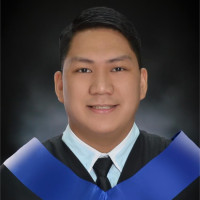
Visit this link: https://actonlineedu.wordpress.com/profile-almighty-tabuena/

